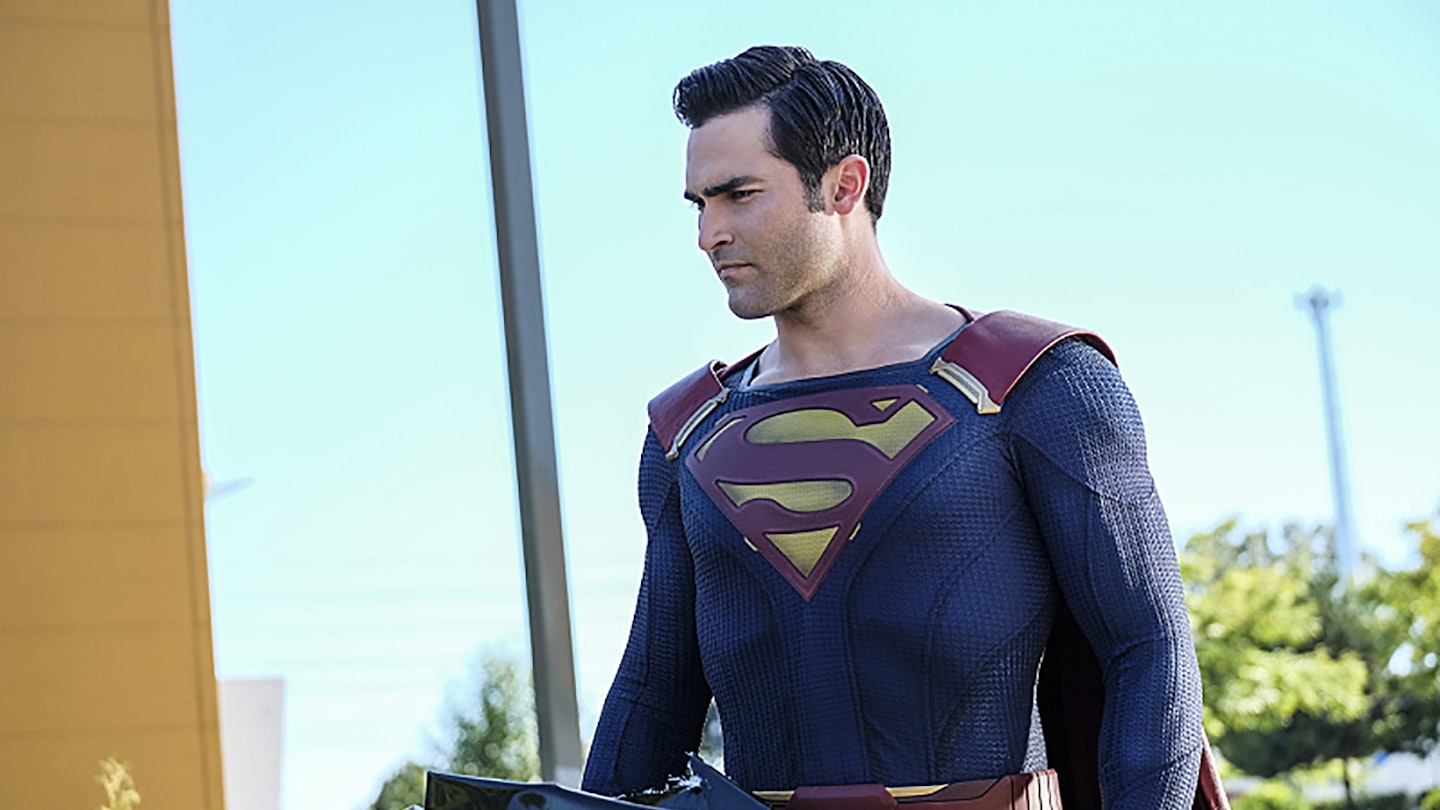For a kid whose true obsession was baseball, Tyler Hoechlin certainly made an auspicious big screen acting debut in 2002’s Road To Perdition, which saw him acting opposite the likes of Tom Hanks and Paul Newman. So critically and commercially successful was that film, that most young actors would have given up everything else to keep the momentum going. Not Hoechlin.
Throughout high school and college, he found himself balancing both worlds, turning down job interviews with Francis Ford Coppola because of a game he couldn’t (and didn’t want to) get out of, and co-starring in the TV series 7th Heaven, whose producers actually worked production around his game schedule. Eventually, as detailed in the following interview, acting won out, leading him to star as werewolf Derek Hale in Teen Wolf and, at the moment, guest starring as Superman on Supergirl, where he’s received accolades for his portrayal. Next year he'll be co-starring in Fifty Shades Darker.
In the following exclusive interview with Empire, the California-born Hoechlin reflects on his personal journey, what it’s all meant to him and the fact that he had auditioned to play Superman in 2013's Man Of Steel.
Anyone interested in just reading his comments on playing Superman, head here.
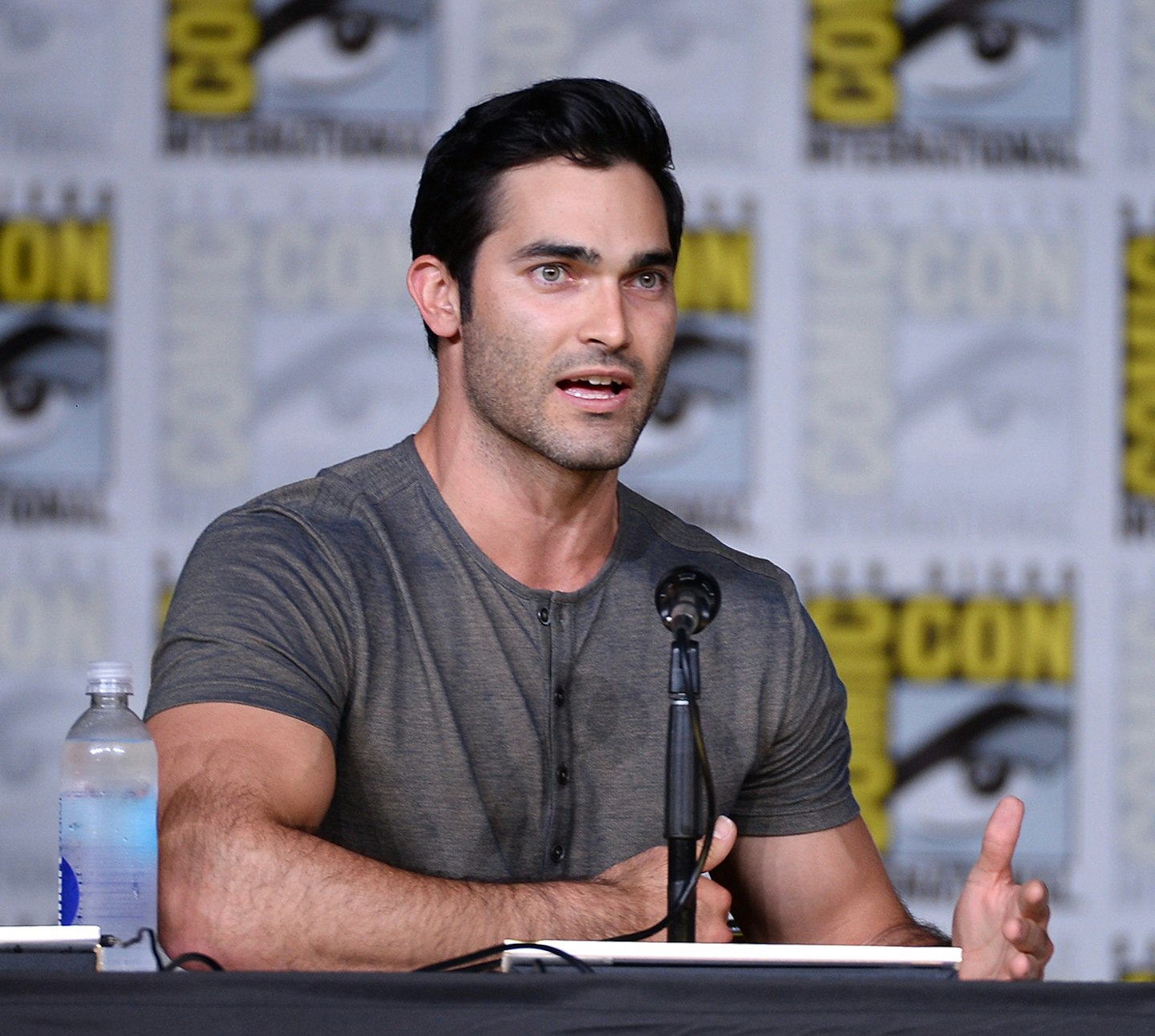
As a kid, you had this double-track going between baseball and acting. What sparked both of those interests?
Baseball I played literally from the time I can remember. My dad had played, my older brother played, so I always wanted to be like my older brother. That just kind of was a natural thing that I fell into. I was one of those kids that started playing year-round when I was probably, God, seven years old. I was never one of those kids that felt like I had to go to practice or that I was being made to go to practice or forced to play the game. Baseball was a natural fit for me. Then acting was a really random situation. I was at home and my mom for some reason had brought up that I had been in commercials when I was a baby. I had no recollection of this. At the time I was, like, seven or eight years old, and I brought up, "Oh, that'd be kind of cool to go and make my own money so I could buy my own video games."
There's a goal.
That was my thing, I was trying to be an entrepreneur at seven years old. So that was a thought that had come across my mind, but nothing really came out of it. Then, ironically, maybe a few months later, we got a letter in the mail for some more of those acting schools that were popping up around Southern California at the time. This one was called Beverly Hills Studios, and we got a random letter in the mail for an audition at a convention center. We were driving up to Moreno Valley for a baseball game, and my coach called and said, "Hey, turn around, game's been cancelled. It's got a rain-out." Which we had never had in Moreno Valley. I played in Moreno Valley through high school, so in the time span of ten, eleven years I played there, I think I might have had two games rained out.
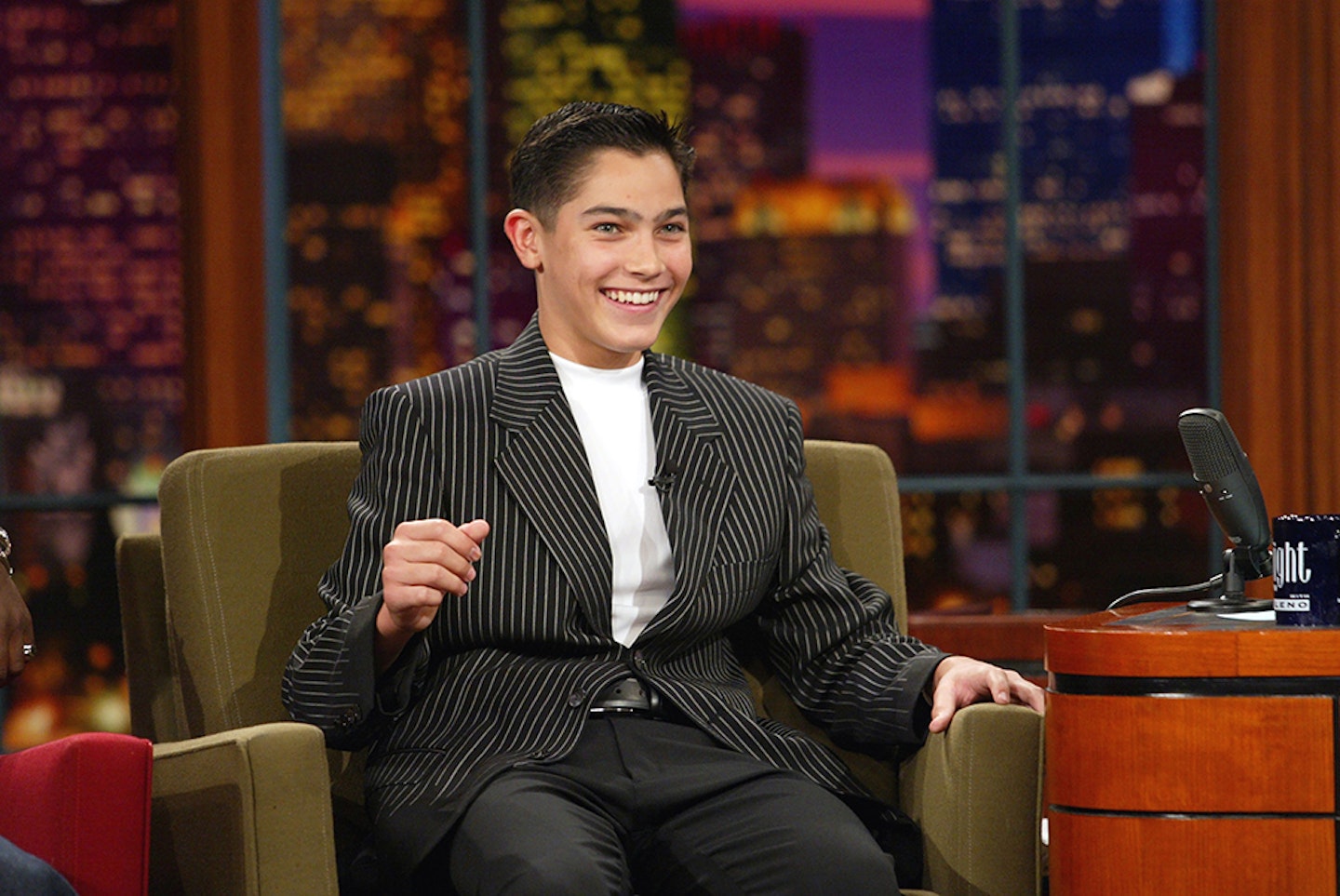
Sounds like divine intervention.
This is that fate moment. We had nothing else to do that day, and we were, "What are we going to do?" "Oh, let's go to that audition for that acting class." We did, and we got into this acting school, and from there we got an agent about six months later. On my fifth audition, I got my first job and just kind of went from there. That was really the beginning of it. I think I was about nine years old when I got my first job.
Had a blast doing it, just kind of finished that school curriculum, whatever it was, and then went on and found another acting school, acting class, tried out a few different things. I was thirteen years old when I got Road To Perdition. That was kind of the moment where I knew I really enjoyed acting, and that if and when baseball is done, this is what I will do. That was really where both of those things started and when it became an official tandem thing for me.
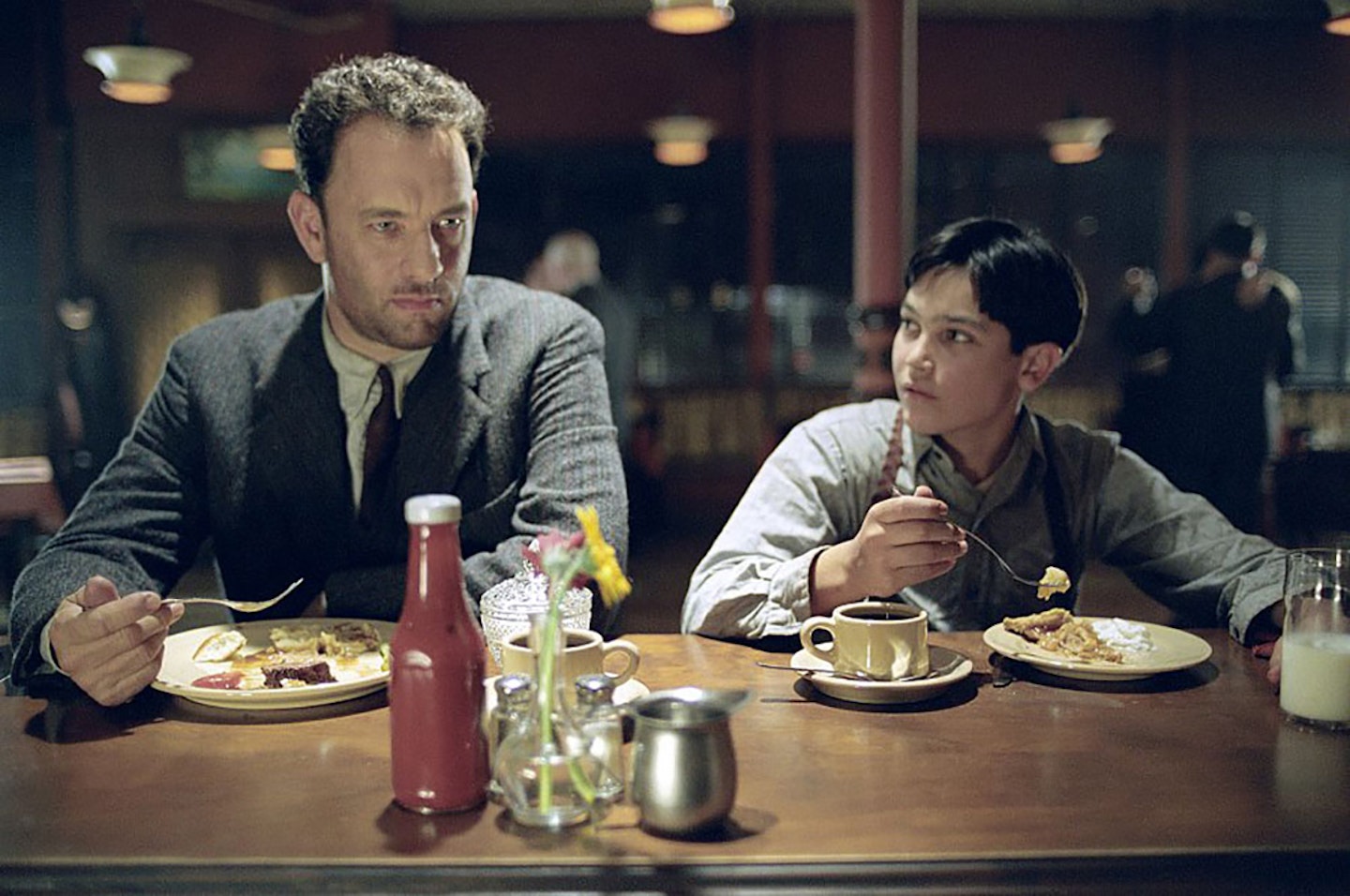
Was there ever a thought in your mind that, while you were playing baseball for all those years, it was a possible future?
Always. That was always my first goal, my first passion. In high school, I played in every Scout Showcase tournament. I played in the Area Code Games, which is roughly the top two hundred and fifty high school students in the country that compete. It's for college coaches and professional scouts to see them play against each other for about a week. I played in that going into my sophomore year, I played in it going into my junior year. Then I got a scholarship to Arizona State, and I played there for a year, and then transferred out to UC-Irvine, played there for two years. The team I was on at Arizona State, we went to Omaha. The team I was on at UC-Irvine, we were an out away from going back to Omaha. It is always a sad, sad story, but yeah, that was my intention. I loved playing baseball, and the only reason I played was to play professional baseball. I wanted that to be my career for a long time. I turned down multiple jobs and meetings because of it.
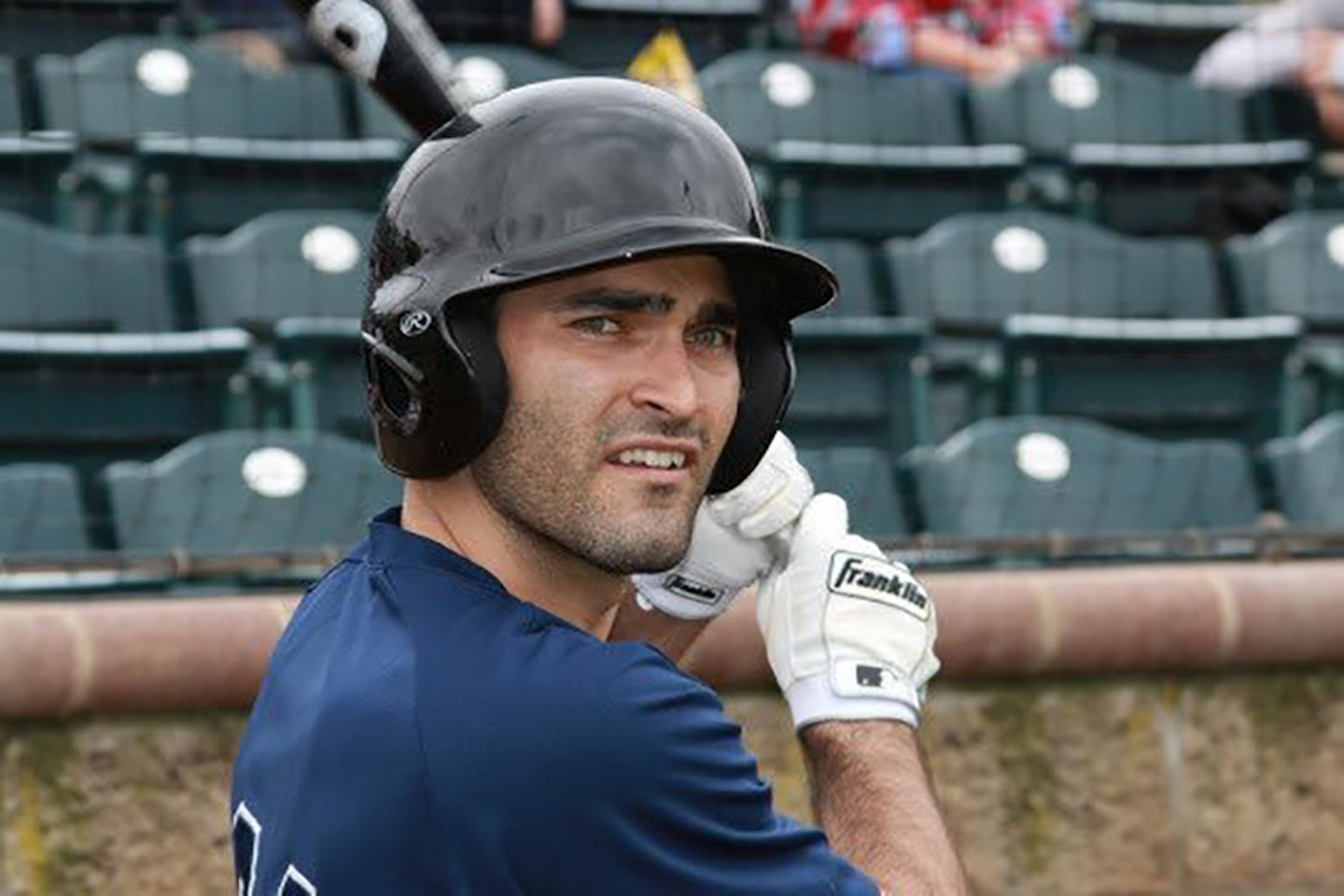
Obviously it reached a point where something changed your view.
I remember I was playing collegiate summer league out in Michigan in the North Woods League, and I got a call from my agent. He's, like, "Oh, man, you're going to love me, you're going to love me. I need you to get back to L.A. I've got you a meeting with Francis Ford Coppola." I went, "Chris, I can't, I'm sorry, man." He's, like, "You can't?" "No, I can't. I'm in the middle of nowhere in Michigan. The team bus is only going from the field to the hotel, and the nearest airport is five hours away. I can't get a cab and go to the airport." "So you can't make the meeting with Coppola?" "No, tell him I'm sorry." I love my agent for this, because he stuck with me for all these years, but those were the things that I would say no to. I had to say no to a meeting with Coppola, I turned down a role in Twilight, because it was two weeks before a season was starting, and I would have missed the first four weeks of the year. I was the starting second baseman, and we were ranked pre-season top ten and supposed to go back to the college world series. I couldn't leave my teammates; it was just something I wouldn't do. So that was from day one always my Plan A. When I did finally decide to stop, it was one of those moments where I had always said that I would never stop until someone literally looked me in the face and said, "Stop playing. Go do acting.”
Basically because you would have a better future in acting than baseball?
Absolutely. I imagined that being someday in pro ball I would have been Kevin Costner in Bull Durham. If I had never discovered acting, I literally would have been that guy. Even though you make twelve hundred bucks a month, if I was making twelve hundred bucks a month to play baseball, I would have done it. I would have stayed.
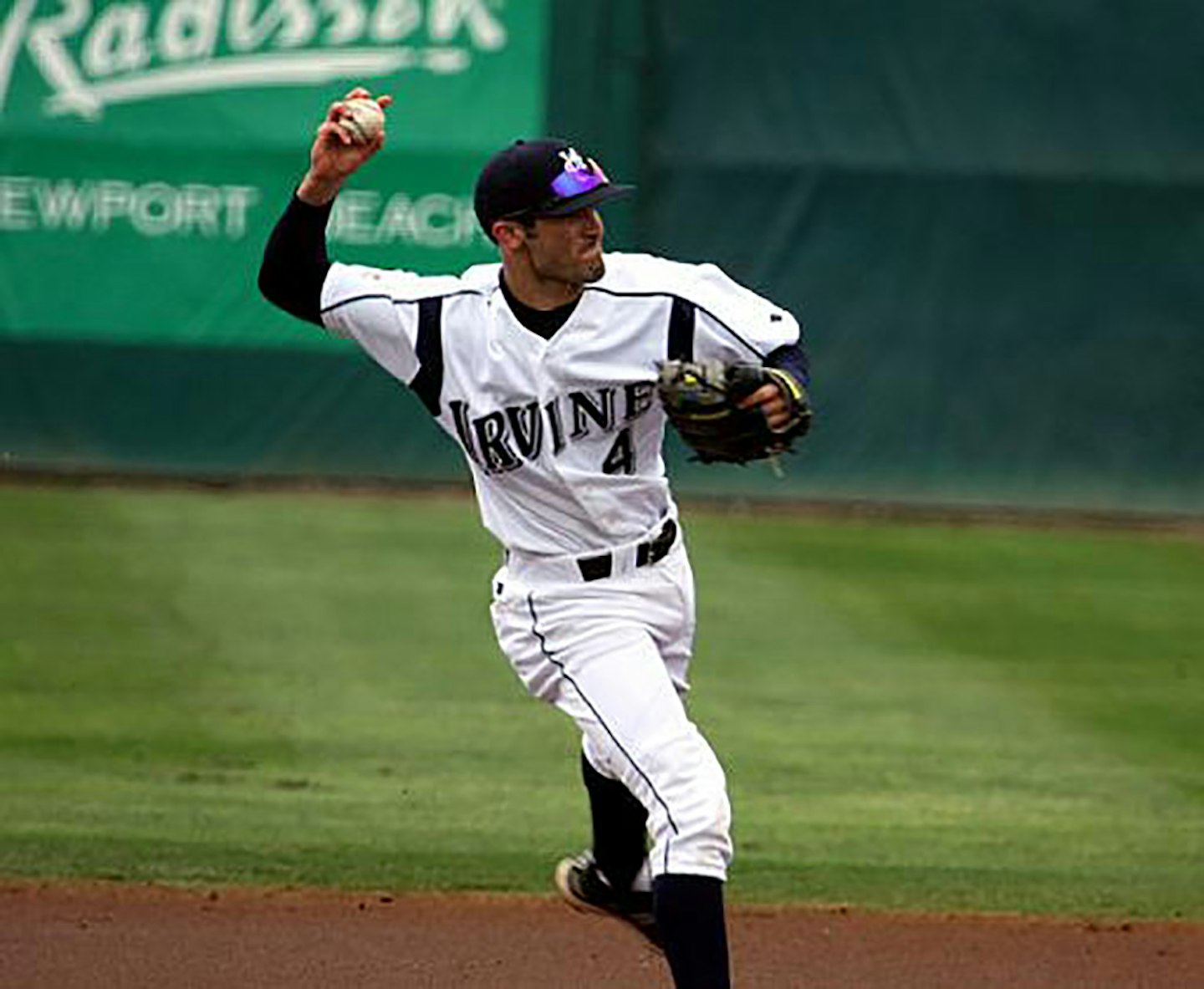
So what changed things for you?
In my junior year, I pulled my hamstring in the summer. I wasn't at a hundred percent. It was one of those things where I had the year before turned down meetings left and right and auditions, all the time, for practice, because it's college baseball. You can't miss a practice. It's not like you're twelve years old anymore and it's an extracurricular. This is now a career and something that people are committed to. I would turn down meetings, and this year I was hurt, I wasn't starting, I wasn't playing. I'd go to the coach a little more often to say, "Hey, I've got an audition, would it be okay if I missed?" He was always really great about it. I didn't do it too often, but he was good when I did ask. But there was one time where I was testing for a pilot, and I went to him, and I asked, "Hey, would this be okay?" He was, like, "Yeah, I think after this one, though, maybe you and I need to have a conversation." I said, "Okay, yeah, that's fair." I had the audition, I didn't get the job, and I came to him and said, "Hey, just so you know, I didn't get the job." He goes, "Okay, well, I just want to have a conversation about moving forward, because right now, I feel like you are hurting yourself by trying to balance these two things. I feel like you have great potential in both, but at this point, I really think you're only going to be able to move forward in either by picking one."
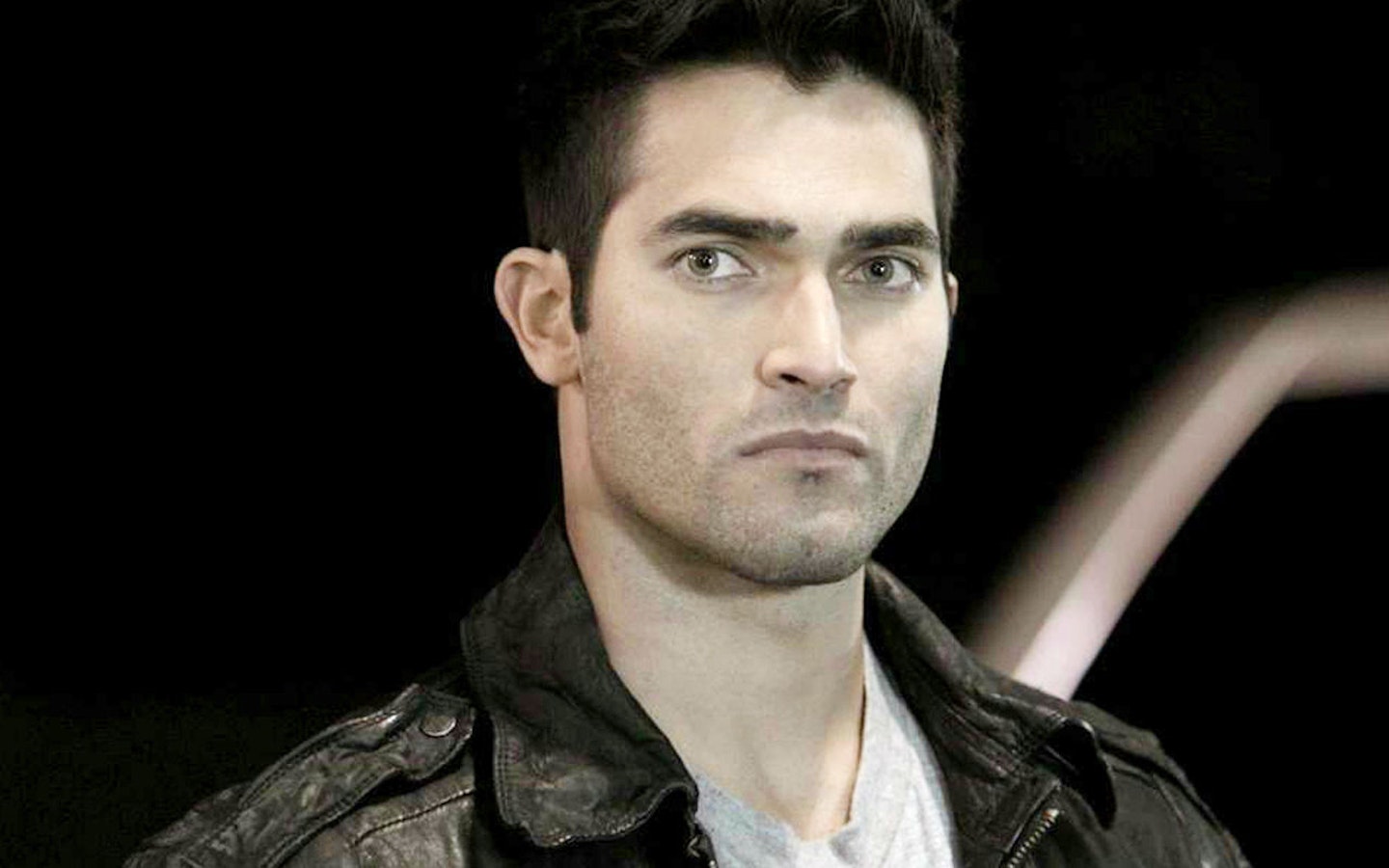
I knew that day was going to come, I always knew it would eventually present itself, but I just didn't know when. This kind of conversation came up, and you know, I'm there on scholarship, he has nothing to gain by me leaving. He's, like, "Look, I've been around this for a long time. You're a good player. If you stay and finish, will you get drafted? Probably, you'll probably play in pro ball. Who knows how far you'll go? But I think you have a very unique opportunity that a lot of people don't get, over in L.A." And that was fair. It was exactly what I've always asked for, to know that it was time, because I literally would have been the guy that would have played pro ball until they came to me and said, "Go home, you don't work here anymore." That was going to be my life.
What kind of impact did that conversation have on you?
Honestly? We had that conversation, it was on a Friday, and it became another one of those weird destiny things. The new quarter of school was starting that Monday. I said, "Can I finish the weekend, play these three games? Then we'll just move on after Monday?" He said, "Yeah, that's great." In a weird way, I knew my last three games were my last three games. It was the most amazing feeling, because for the last, God, ten years, baseball had been like, "I have to do well today, I have to do well today, I have to do well today." Because it was all part of the process of moving forward and onward. This was the first time since I was probably twelve, thirteen years old, that baseball was just purely fun, because I had no tomorrow. Stretching was the best thing ever, warming up was the best thing ever, guys just bullshitting and telling stories in the dugout was the best time ever. I had three days to really just remember what I loved about the game, loved about the locker room and about being on a team, that a lot of guys don't get. Because a lot of times, it's just after a game, "Hey, sorry, you're done." I got to know my last seventy-two hours were my last seventy-two, and I got to really enjoy those. I still cried like a baby after that last game. Spent an extra hour and half in the locker room that I probably didn't need to, but yeah, it was a good close.

Which, of course, marks your full time transition over to acting. Now going back to Road To Perdition, what was that experience like, given that you were thirteen when you were hired?
I always say if there was one thing I could go back to in my earlier years with the perspective that I have now, it would be that experience, because there's so many more things that I probably would have soaked up and been aware of. But it was an incredible experience. I couldn't ask for it to have gone any better. I mean, the people that I worked with were incredible, not just talent-wise, but just as people. You know, Tom Hanks and Paul Newman and Jude Law and Daniel Craig and Sam Mendes — all these guys were just absolute pros at what they do. I think more than anything I just learned how to conduct myself professionally, conduct myself as a human being, and I think it’s one of the greatest lessons I got out of it, because I've seen this come back to bite some people who don't get to work anymore because of it.
I learned that you've never made it, you've never arrived, you're never too good, you're never above anybody else. To see Hanks and Newman treat the last P.A. like the executive producer, zero distinction. Nothing that says, "Oh, my job here is more important than yours."
That's amazing.
They were never those guys. When I see that sometimes in people, I just go, why? What makes you think that that's (a) okay, and (b) how you're supposed to be behaving? It makes no sense to me. I was lucky enough at thirteen to work with two legends, and never for a moment do they ever give off that idea, or that that thought had even crossed their mind. More than anything, I think moving forward that was probably the most invaluable experience and lesson that I learned from them was just to always work just as you did day one, be just as grateful as you were day one, and treat everyone like it's still your first job and that we're all just happy to be here.
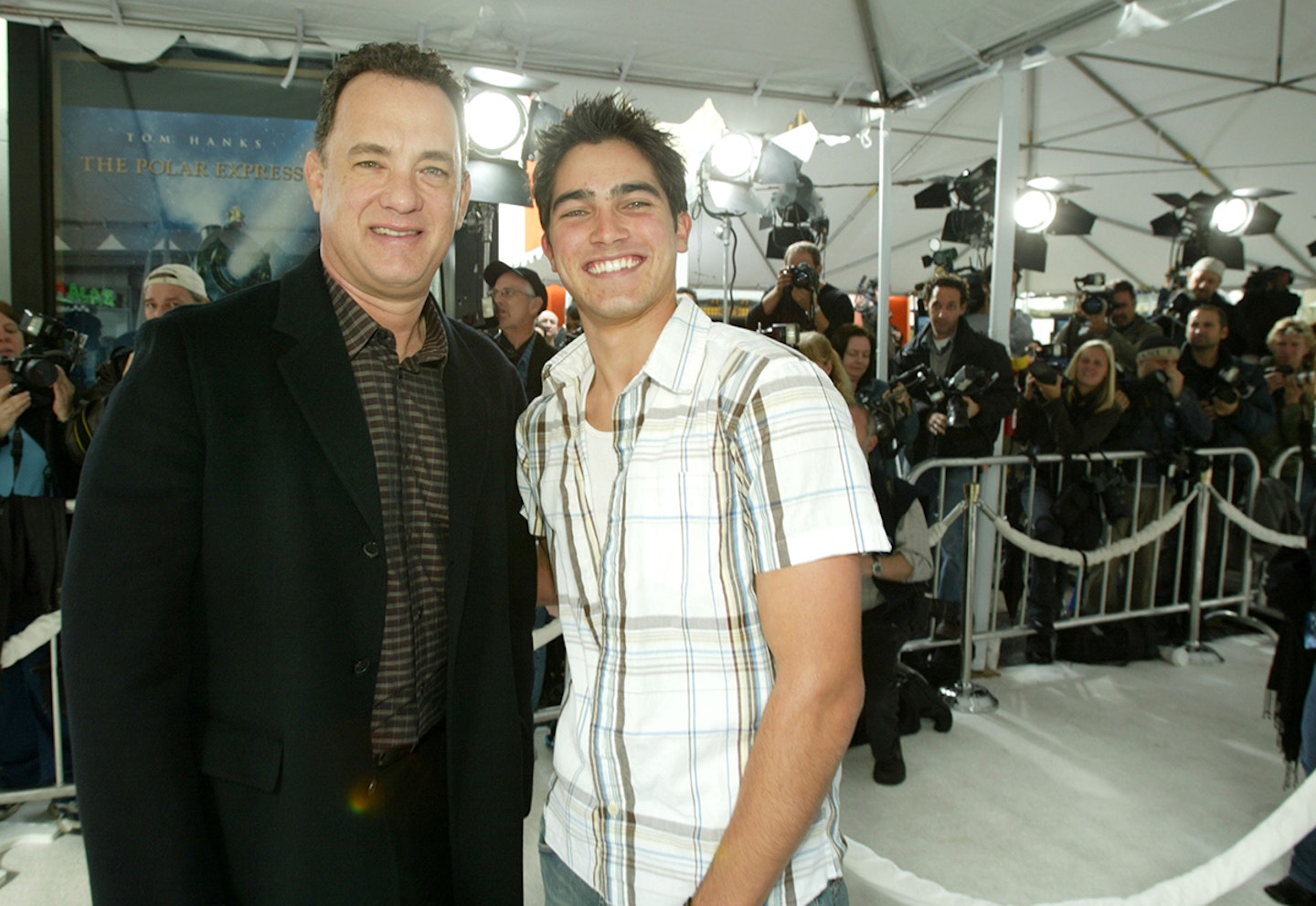
To hold on to that, especially after such a critical and commercial success, is impressive.
Well here's the thing: I have been doing it long enough now to know that there are really great times and there's not so great times. It's all a rollercoaster, man. It's up and down, and people are going to love things you do, people are going to hate things you do. That's part of it. Actually, it's nice when people hate what you do, because it's still a passionate feeling about it. It's kind of when they're indifferent, you're like, "Oh, well, what am I really doing?" It's nice to go one way or the other.
It was a crazy experience for me. I kind of knew what I was doing was a big deal. But when I got to the premier, it was the first time that I actually went, "Oh, my God, I could ruin this movie. I'm in this movie enough that if I'm not good, I could absolutely ruin it." It was a pretty crazy feeling, but those guys made me feel so comfortable and so at home. I never felt the sense of questioning from them. I always felt like they were all very confident in me, and I was a confident kid coming from sports, so I was always really just excited to get to work and get going. Again, I was a kid. The movie came out right when I was starting my freshman year of high school. For me it was, like, “Make the varsity team, make the varsity team.” That was my focus when the movie came out.
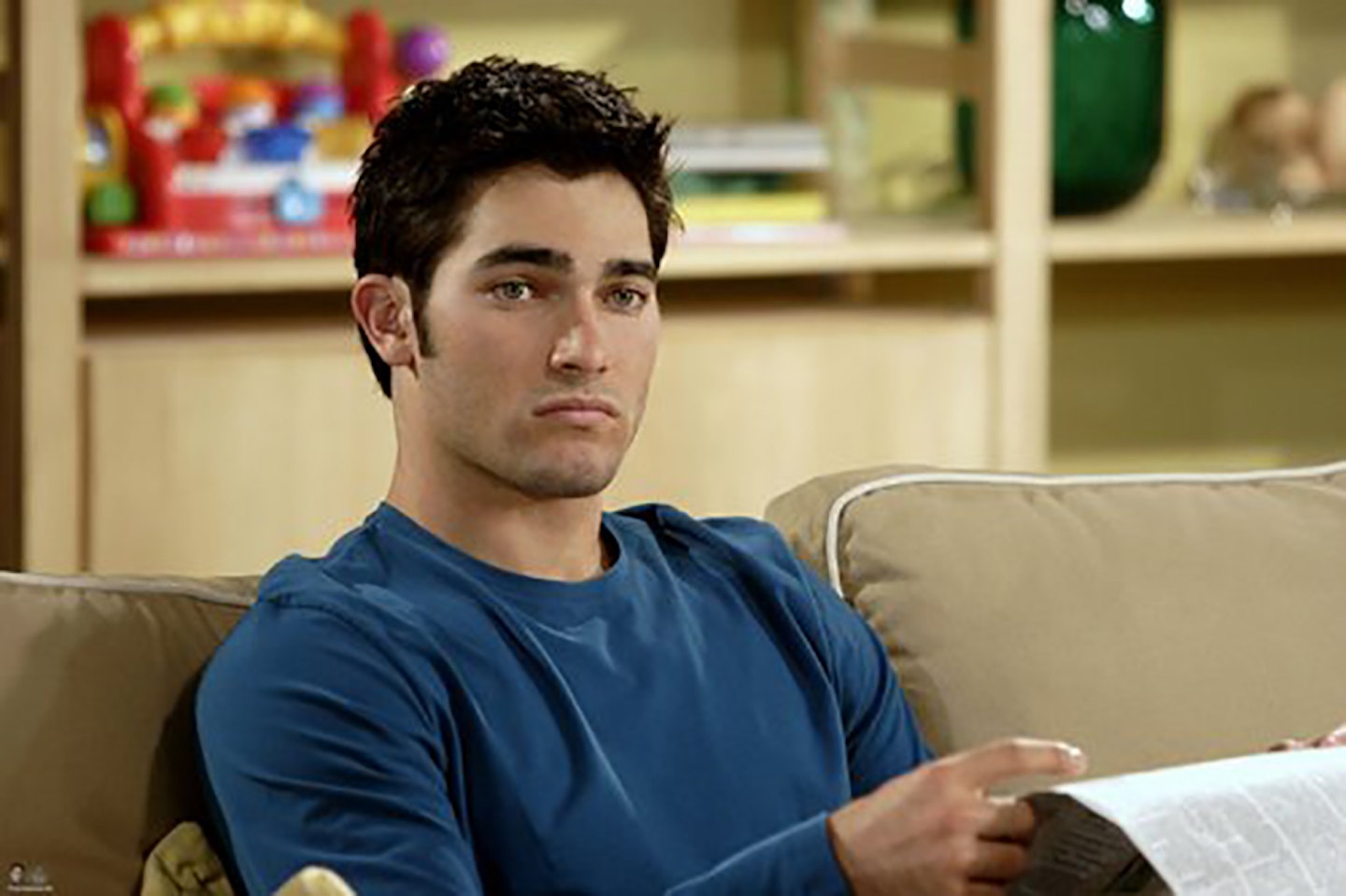
From that movie, you went into the TV series 7th Heaven. What made you decide to do that? To shift from film to a TV show with a multi-year commitment?
I was supposed to do a Treasure Island remake with Geoffrey Wright and William H. Macy. I was going to play the lead, and that's when I was almost fourteen. That movie fell through and it was right around my freshman year of high school. I played my freshman year. I'd gone in for quite a few things after that, and had been testing and testing, and just wasn't the kid for it. Then I had a meeting with Brenda Hampton for 7th Heaven. At the time, Jessica Biel was still there, the show was the number one show on WB, and I remember the mania that was 7th Heaven back when I went into that meeting. I had a great meeting with her, and more than anything, it was an ensemble show. My original contract was a two-episode arc with an option to be picked up for the rest of the season and an option for a second season. I did the two episodes. After the first episode, we had gotten a call that they wanted to do a spin-off. Basically, I called some people and said, "Well, what does that mean for me, with my baseball?" They're, like, "Well, you would be the lead, so you'd be shooting about every day. So baseball probably would be over." At sixteen, I was, like, “Nope, sorry, not going to happen. This is not the time that I can walk away from the game with no regrets. I can't do that.”
We said no, and we stayed with 7th Heaven. They picked up my option for the rest of the season, so I became a recurring at that point, and then a regular the next season. It worked out with the schedule. I’m grateful to that show for how accommodating they were. Because it was an ensemble, I only worked a couple days a week, usually. I would always give them my game schedule and, amazingly, they worked around it. And I loved that time. I will never be as busy as I was in high school and college, because 7th Heaven went through my freshman year of college. I was at Arizona. We would have Sunday night practices, and then I would take a red-eye, from the field, I would get picked up, go to the airport, take a red-eye to New York (because of my storyline I had to shoot in New York that year), land at the airport, go straight to set, shoot for twelve hours, go back to the airport, fly back to Arizona, go to class on Tuesday morning. That was my schedule my freshman year in college. Anytime anybody goes, "Wow you've been busy." I'm like, "No, not since college. This is a cakewalk in comparison.”
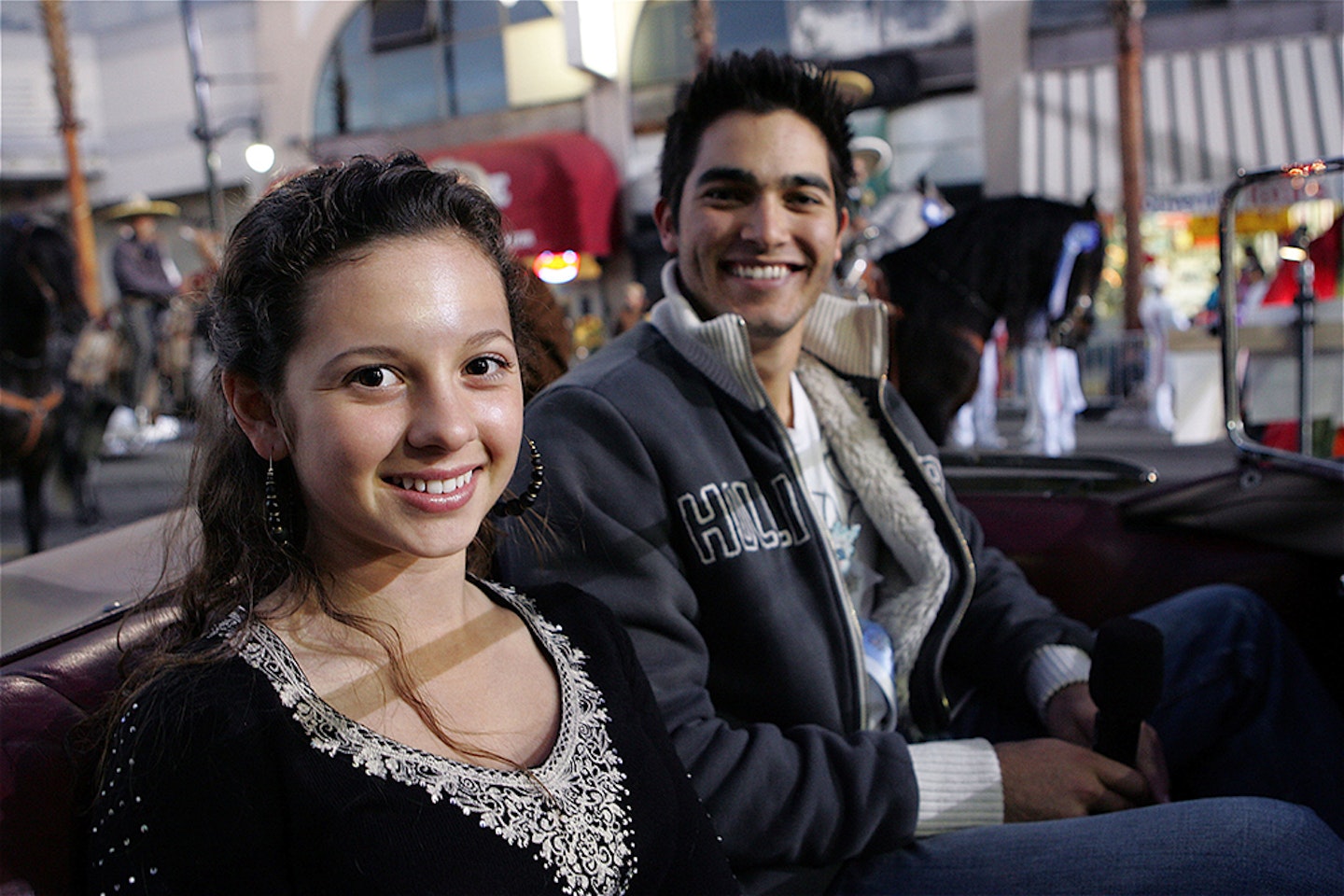
Teen Wolf was the next major role. Again, what made you feel that that was a good fit?
The audition was at the end of 2009, and this was right when Twilight was really out and popular. People were kind of jumping off of that and coattailing that so badly, that everything you read was vampire and werewolf. Going in to read the script for Teen Wolf, I was expecting it to be that. But I read the pilot, and it was great. It was such a well-written script, the characters were so great. I loved the Romeo and Juliet of the whole thing; this forbidden love between these two characters. I really enjoyed the pilot, and so I went in and read for it. I eventually was offered it, and coming out of not having been fully into the acting thing for quite a while, and being fully committed to baseball, that was a chance for me to jump back into something and dive into a character and work really consistently for a while. That was the hope. I had had a conversation with [series creator] Jeff Davis when we were shooting the pilot about where he saw everything going, and I just thought it was a great vision for it. God, who knew that it would really turn out to be what it was? It kind of just took off.
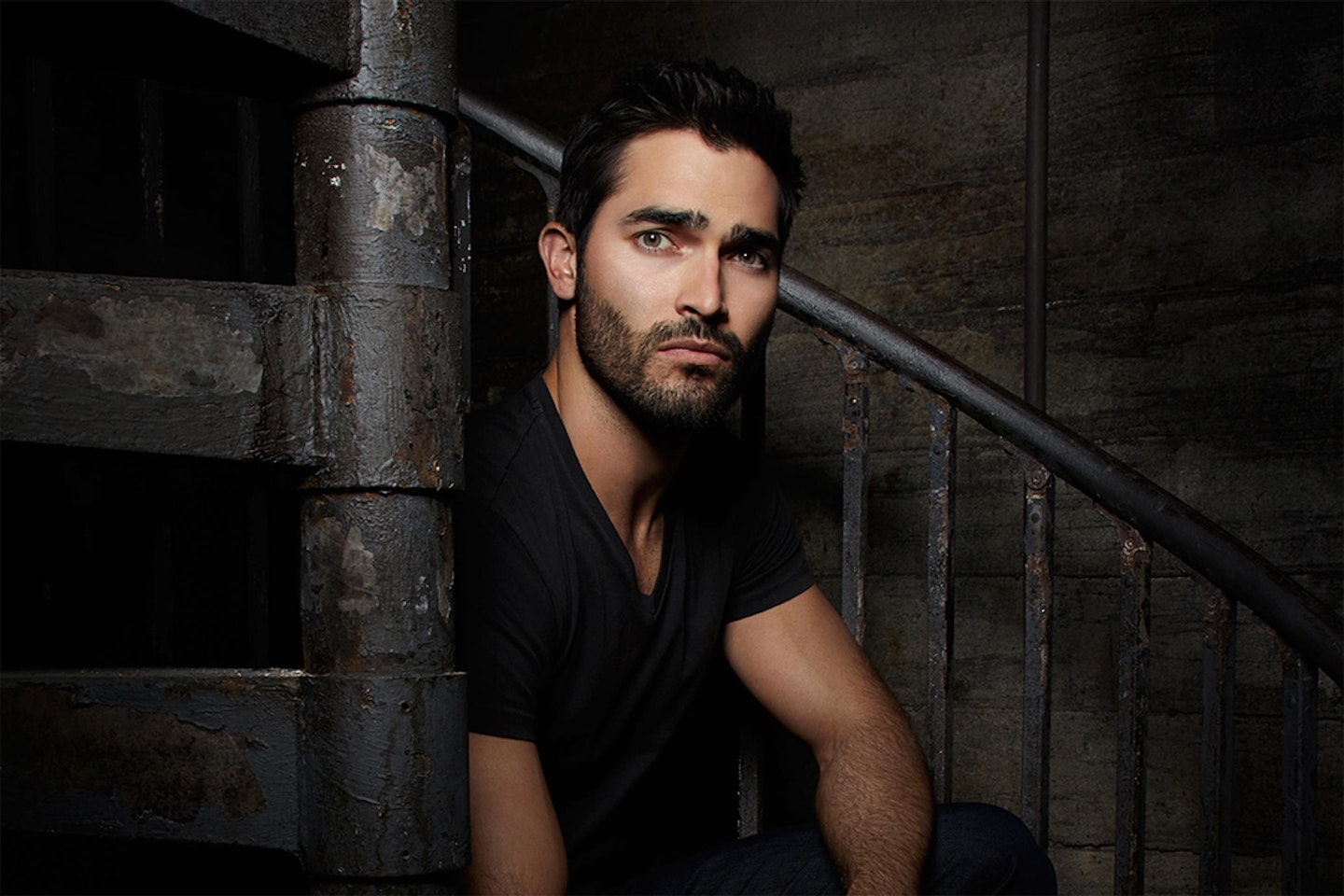
How would you say Derek Hale sort of changed over the course of the show?
The first season he's just this guy who is so filled with anger and hate and this desire for revenge, really. Then by the time he really gets it, he awakens to this idea that, "Now I don't really know what I want and who I am. Here I've been driven by this for so long that I've never really had time to think about that." For me it's this feeling of wanting this power and control. Then eventually he realizes, you know, the best thing he can do is just contribute where he's meant to contribute. If that's as a leader, then great. If it's not as a leader, then that's fine.
In that last season, the biggest thing for me was that he started out as this really, really always angry person and kind of became like this Buddhist Zen master by the end of it, who is willing to accept his place, no matter what it was, and then just be the best at that. Which is funny, because it's actually like a theme that kind of came into play with the whole Superman thing as well, which is that, as long as you are contributing as much as you can, where you can and how you can, technically you are being Superman. That's all he does. He just has different abilities and powers to do, in our minds and by definition, greater things. I mean, if you're only capable of pulling somebody back off the street onto the sidewalk as a car goes by, then that's all you're capable of doing. You don't have to fly to do it, to be this great person. I think it's this idea that you commit to what it is you can do and contribute and do it well.
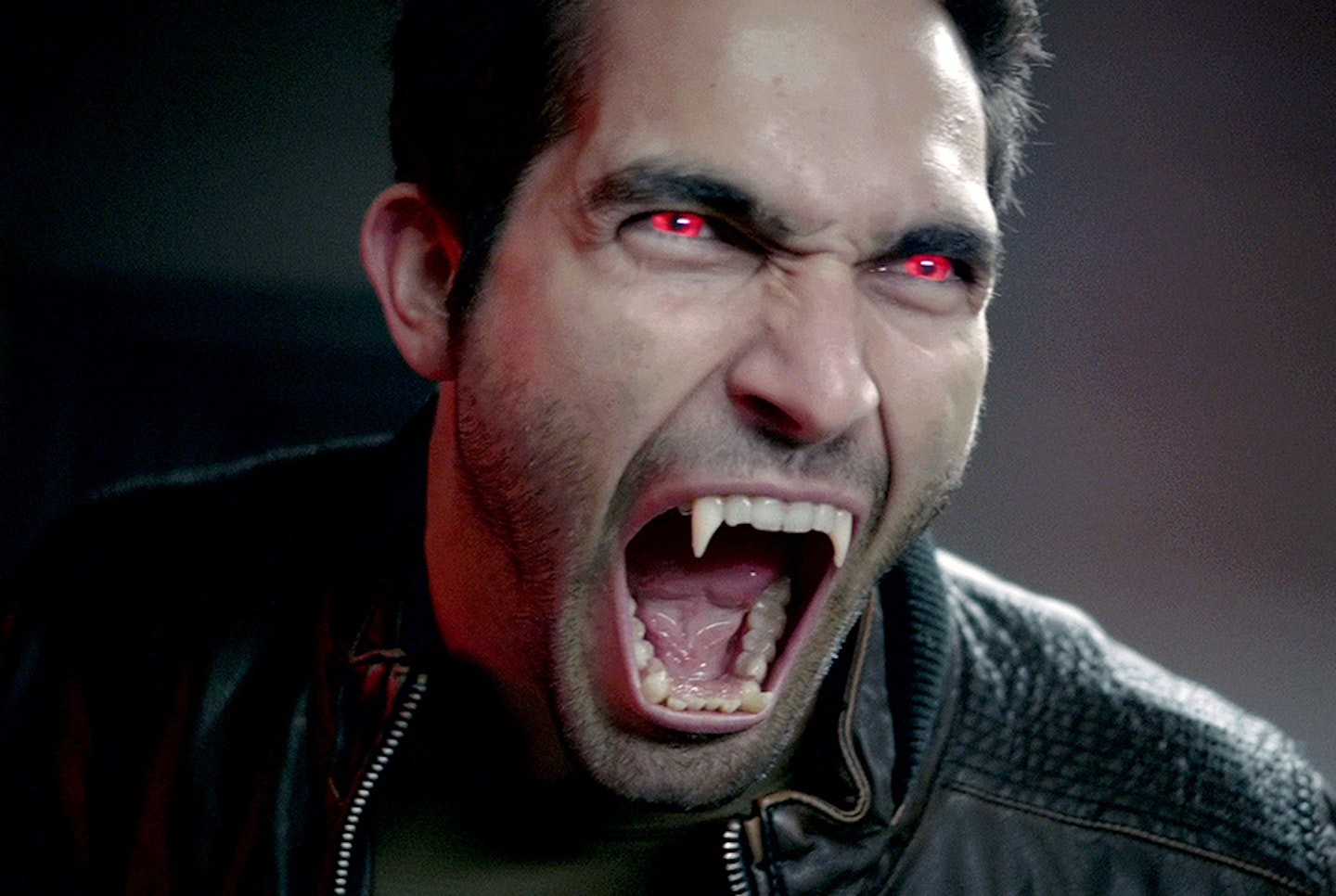
On Teen Wolf, was it strange to be in a situation where you were suddenly part of a cult show where young girls were going crazy for you?
It's funny because 7th Heaven finished shooting about 2007 and Teen Wolf kind of became popular around 2010 or 2011. It was crazy, because the transition in how things worked back when 7th Heaven was going on, and then what things were when Teen Wolf came out, was night and day. Absolutely night and day.
In terms of social media?
Yes. With camera phones and social media, it was an entirely new world within a few years. Because 7th Heaven, you know, maybe somebody had a disposable camera, maybe they had a piece of paper and a pen for you to sign an autograph. But the idea that every person you came across has a camera on them just waiting to be used, and then can immediately be uploaded somewhere and posted somewhere was insane. It was shocking, really. You've been in that situation before and it feels the same, but it's completely different.
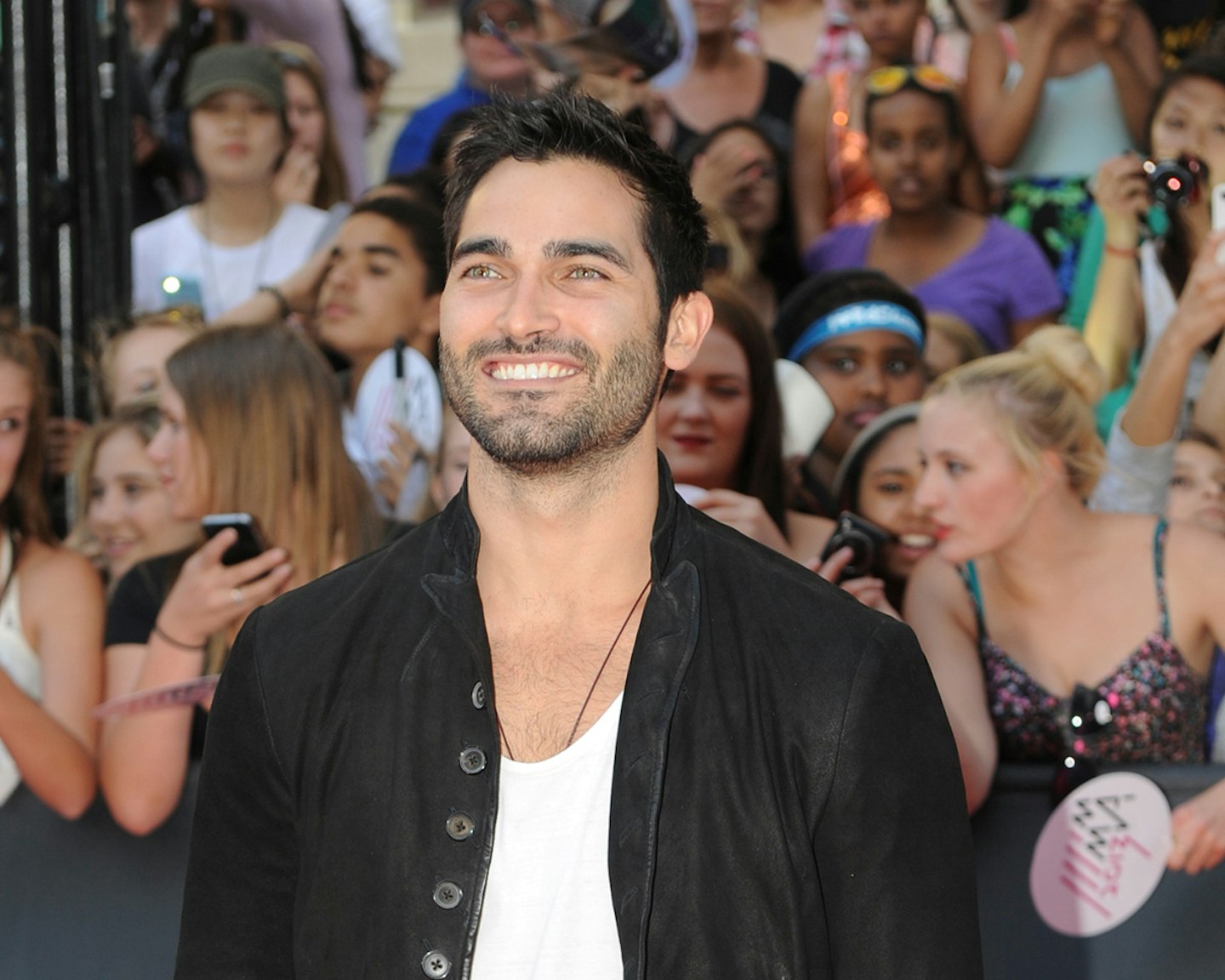
You were at Comic-Con doing press for Supergirl, and as soon as the interviews ended, you were surrounded by reporters wanting selfies.
I personally do think it's gone too far. Anytime that I have an impulse to pull out my phone and take a picture, especially of a landscape or something, if the first thing I do is reach for the phone, I actually force myself to sit there and at least wait thirty seconds before I actually grab my phone. I'm, like, “No, sit here for thirty seconds, and just see what you think about. What does this make you think about?” I honestly think the impulse is to grab something and capture it, and not capture a moment that you want to remember, but just capture an image that you want other people to see right away. It's about how someone is going to "like" this and it's no longer an experience. It's just this constant sharing of images. I personally don't like that very much.
A friend of mine sent me this thing that I think Justin Bieber had actually said about how he wasn't going to take photos with fans anymore. He took so much flak for it, and I totally understand, but at the same time, knowing what it's like sometimes when me and some of the Teen Wolf people go out, whoever it might be, it can get a little bit crazy. I can only imagine being the most famous person in the world, what that must be like when you go to the grocery store, when you go anywhere. I kind of have to say, “If I was him, I'd probably say the same thing.” It's no longer people saying, hey, and shaking your hand. It's being stopped for fifty people, a hundred people to take a picture. You literally don't have the time to do that. I'll try to give everybody "high fives," and it's almost like if you don't take a picture now, you are called an asshole.
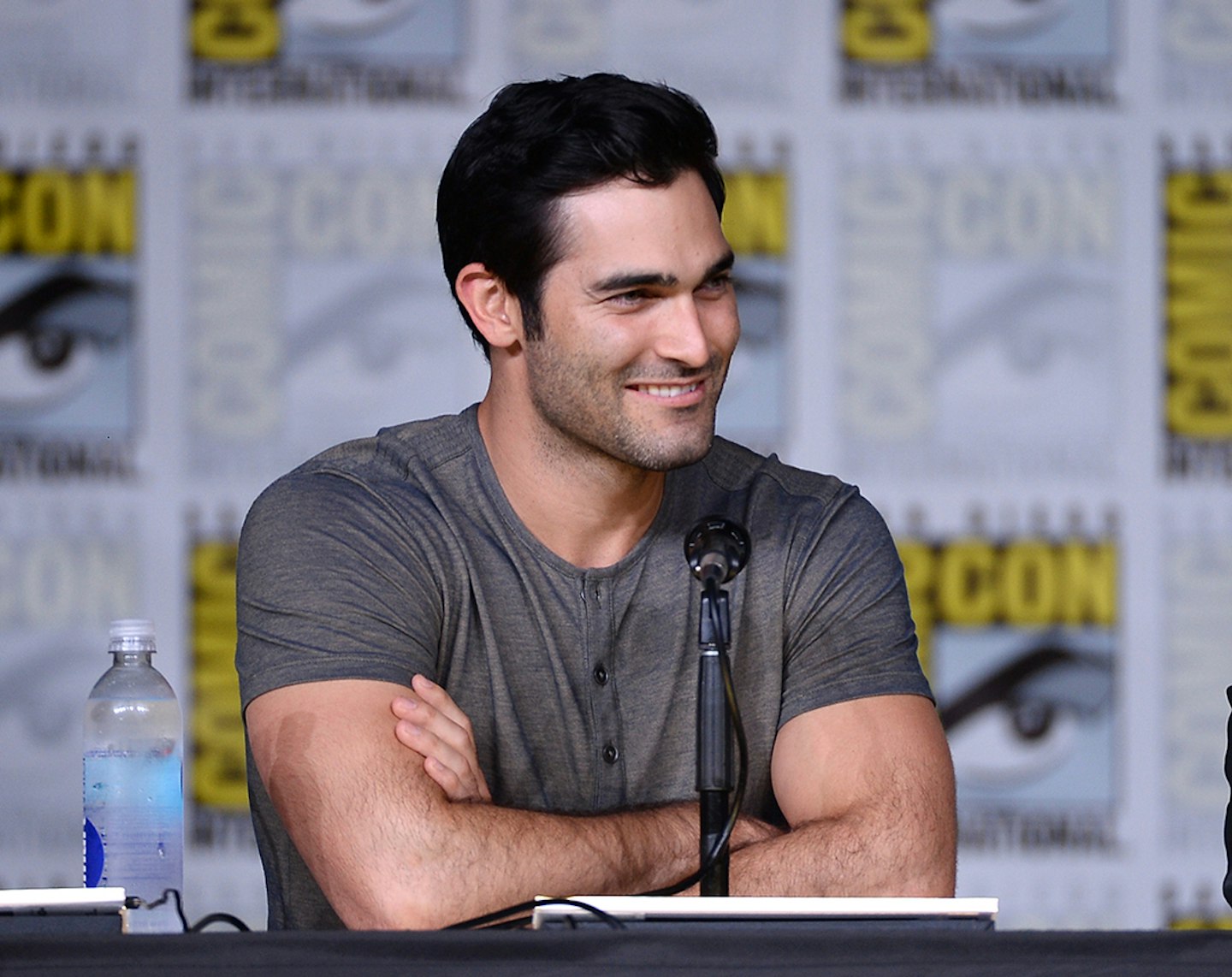
And that statement sounds like it's coming from personal experience.
We were in Vegas for my brother's bachelor party. This guy comes up to me, and he's about twenty-three, twenty-two. He goes, "Hey, bud, it's my girlfriend's birthday. Would you take a picture with her?" One, it's a pool, she's in a bikini, I'm in my board shorts, and I go, "Honestly, man, it's kind of inappropriate for me to take a photo right now. But bring her over, I would love to talk to her." He brings her over, I talk to her for probably ten minutes; you know, "Where are you guys staying, what are you guys doing, seen any shows, where are you from?" Had a long conversation with her, said happy birthday, gave her a hug, said, "Hope you guys have a great time." They went back over to their area, and when they go to leave, her mom comes up to me and she goes, "Hey, you met my daughter. It's her birthday." I go, "Oh, yeah, she was lovely, I hope you guys are having a really great time." She goes, "She wanted to take a picture with you and you wouldn't do it. You know, you're nothing without your fans." Walked away and flipped me off. I went, "Wow, so the fact that I actually had a ten-minute conversation with your daughter means nothing because she can't post that on her Instagram."
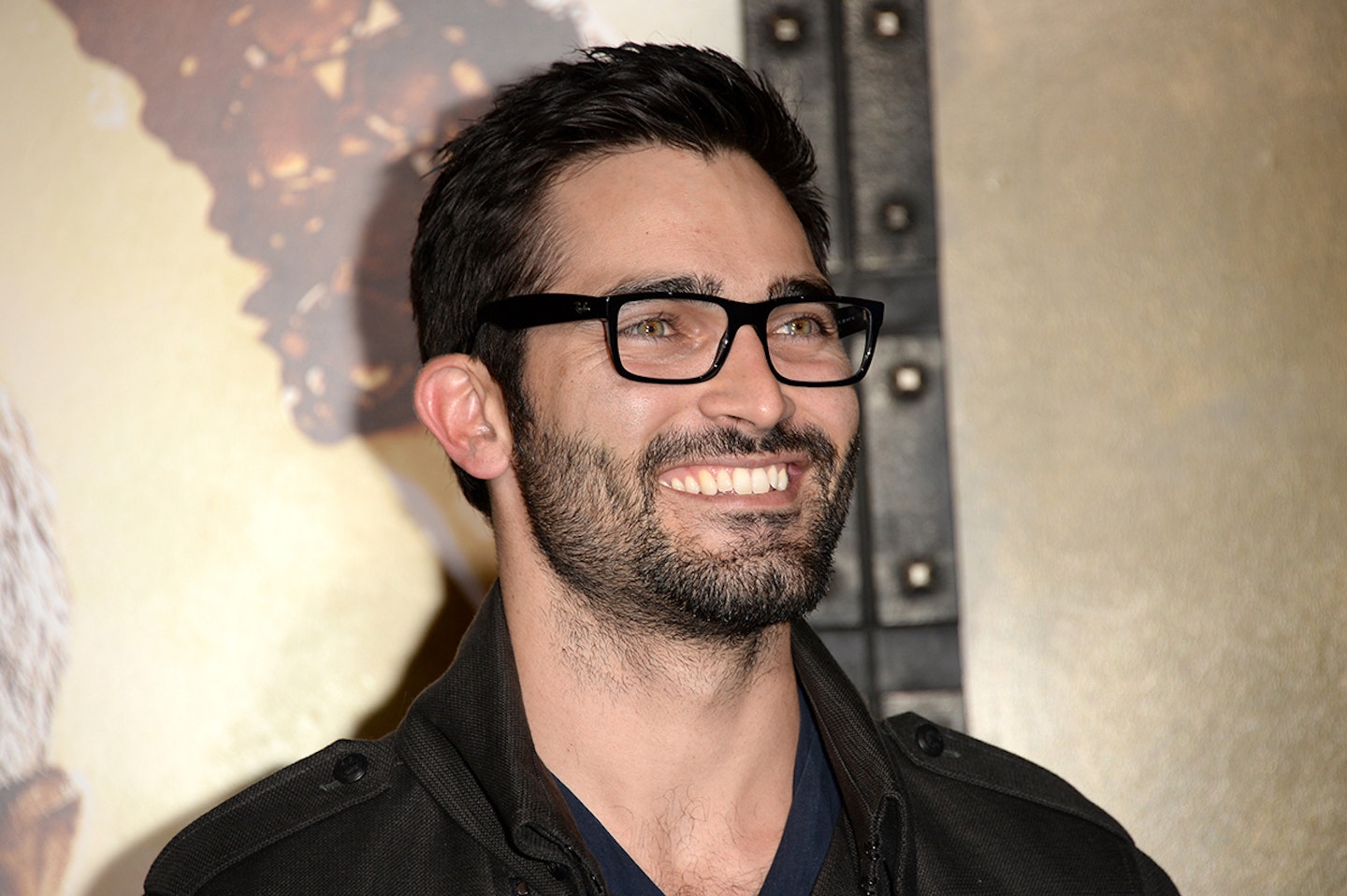
Isn't that amazing?
That's why I'm a bad person. Again, for me it's a disconnect with the personal experience as opposed to the shared experience. You can no longer just have something to yourself. I love sitting down with my friends at dinner and actually telling them a story, as opposed to going, "Hey, did you see that thing I posted on Instagram?" For me, I would so much rather sit there and actually share a story with somebody and have somebody tell me about their trip, or things like that. I don't need to see it. Come back and tell me, I'd love to sit down and have dinner and catch up with you. It's just a weird thing, and I think that was the biggest shock of what everything had turned into.
You’ve certainly had a lot of attention from people for playing Superman on Supergirl. Did that level of interest surprise you at all?
I've been fortunate to be around this business for a long time and so I've seen things that should get a lot of attention get no attention. I've seen things that were not supposed to be a big deal become the biggest thing in the world. When it comes to how much attention something gets or how much attention it draws, I really kind of just try to expect nothing at this point. Whatever it turns into, it turns into.
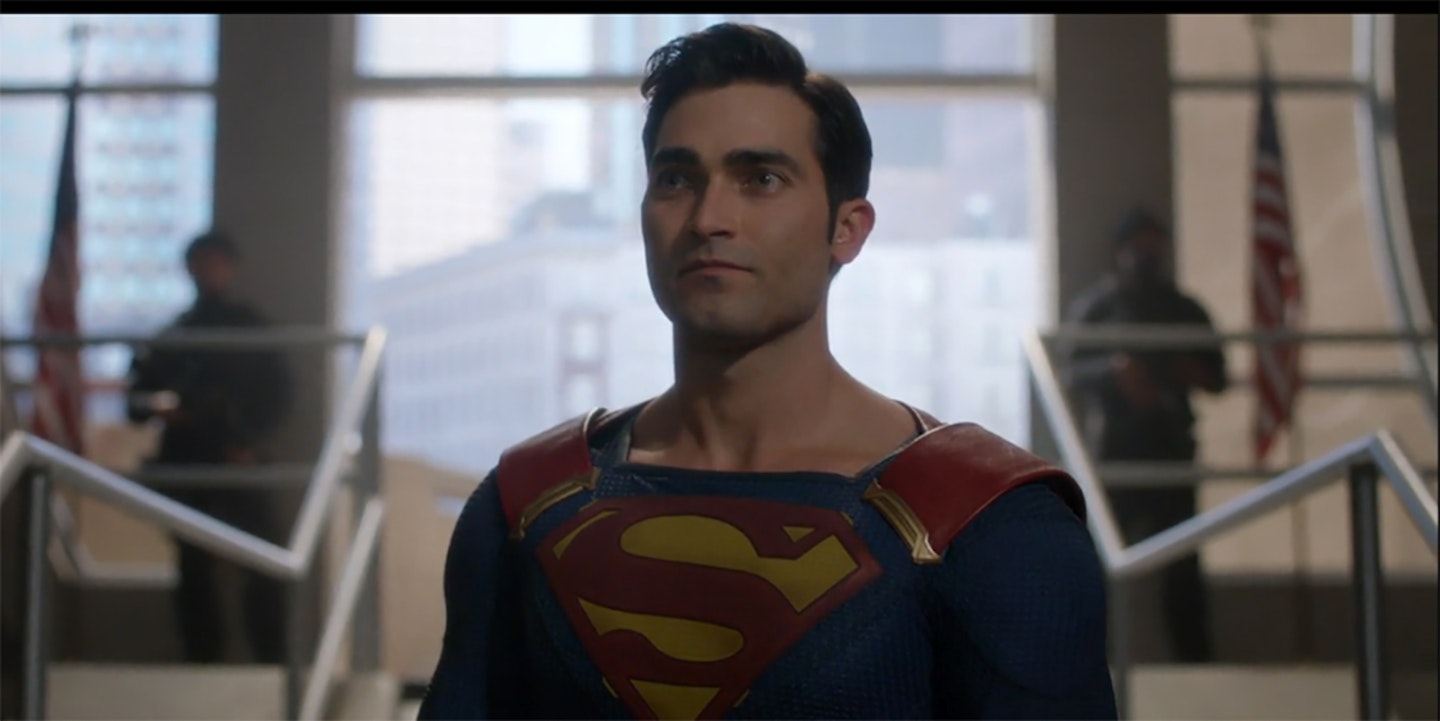
At the same time, the media attention on this can’t be denied. Does it have to do with the iconic nature of Superman?
I think any time those larger than life characters are going to be presented in a new setting, it just garners attention no matter what. It's something that so many people follow and so many people are passionate about that, inevitably, there's going to be a lot of chatter about it.
Back in July at Comic-Con, you still hadn’t actually played the part. Having now done so, what was the experience like?
Comic-Con was interesting, because people were, like, "Oh, you're Superman now." I was like, "No, I'm not, I haven't done it yet. Let me go play it." Even then it didn't feel real until I think the morning of the first episode last week. I remember talking to my dad and being, like, "Oh, it's kind of weird, after today there will always be some footage that exists of me playing this character." It didn't feel real until then. Going into it, I think I should have really felt nervous about the whole situation. For whatever reason, I had such a great meeting with Greg Berlanti and Andrew Kreisberg, when I first got the job, that I just felt really confident in them and I felt they were really confident in me; that we knew what we were going for. For whatever reason, I felt really comfortable the whole time.
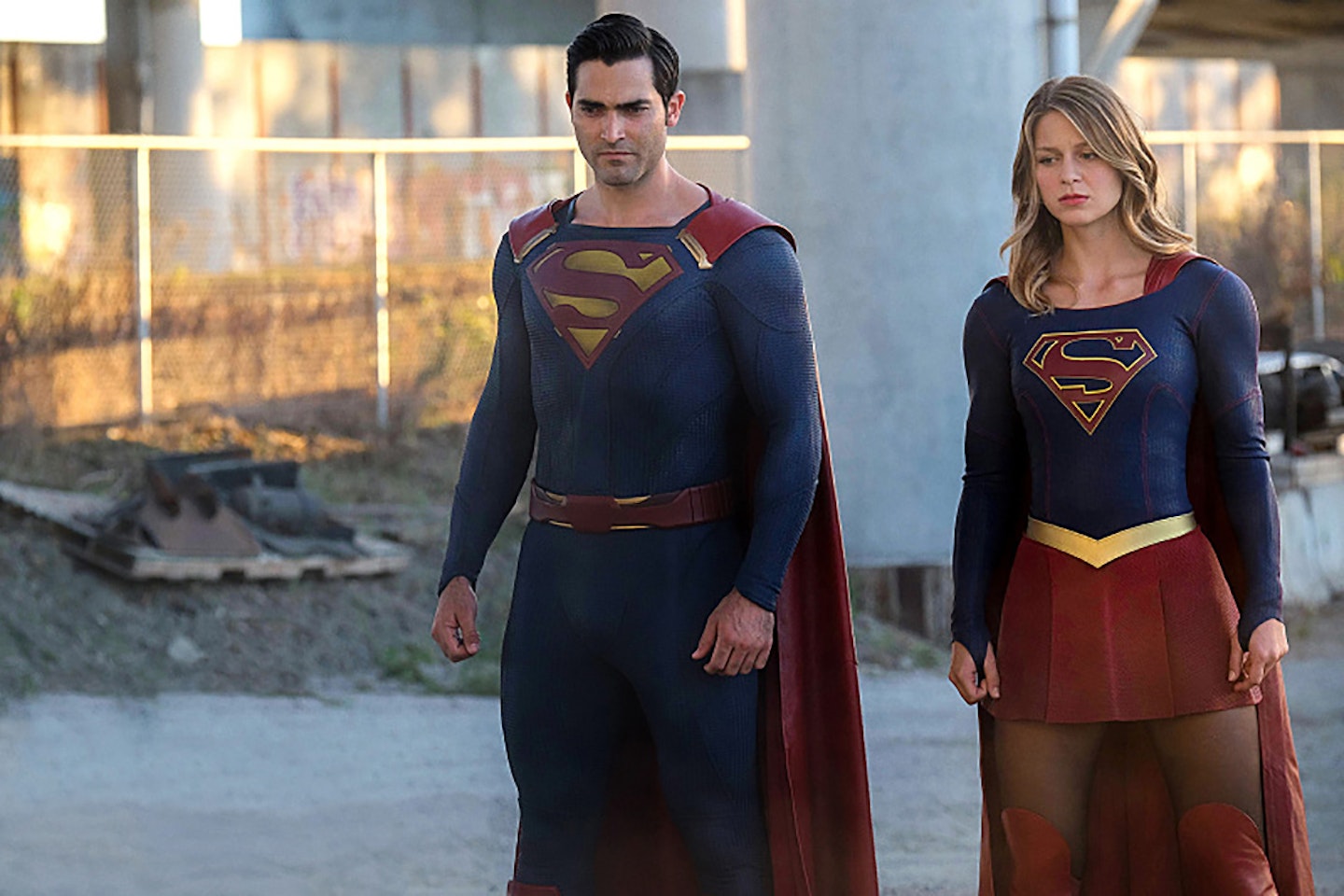
Melissa Benoist and the rest of the cast were so great and so welcoming from day one, so it kind of felt like home. They made it a really seamless transition for me to be there. I would say it was just the most pure fun that I've had playing a character and shooting something. I had this great experience on set where a P.A. pulled over four kids, two of them were, like, seven or eight years old, two boys, two girls. I had the suit on, and they come over, and their eyes just light up. For ten minutes, I was, like, “Oh, my God, to these kids, I am Superman. They don't know my name, they don't know who I am, they don't know what I've done. They have no idea.” I couldn't love that more. This is so great. I could make these kids' day, and it has nothing to do with me. It's just I'm the guy wearing the "S." And that's it. That was such a cool experience to be able to do that for them, and then I always say that, selfishly, as an actor, it was really informative, because I went, “You know what? That's who this guy is. He's there to make kids feel like they can do anything, they can be anyone, that good can triumph over evil” and all these things.
It also kind of reminds us to be a kid again and have that kind of incredibly hopeful, optimistic outlook before we turn cynical when we get older. That’s what I kind of started falling towards as a character, wanting kids to think that that optimistic view that you have when you're a kid of what the world can be, that we can still make it that, regardless of how many times the world tells us we can't.
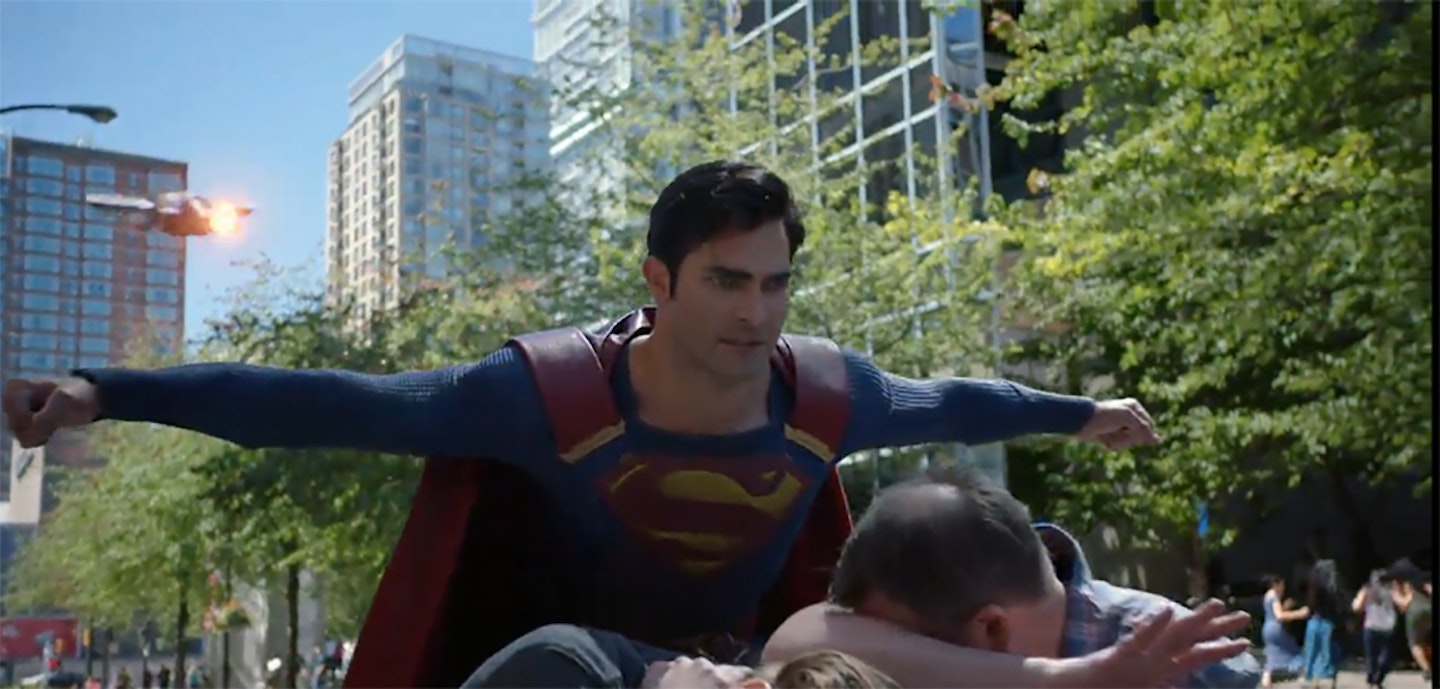
There’s a great bit in the first episode where you block bullets from a flying drone and save a father and his kids. You turn around and use heat visiion to blow up the drone, the kids are carrying on, and you wink at them before you take to the sky. That simple gesture in itself seemed to personify the character in a way that it hasn’t been in a long time.
It was in the script, and we had a lot of fun with that. I remember reading that for the first time and I loved it. That's such a great moment. I do think it's that little nod of, "I gotcha, kid, and you know what? You can do this, too.” For me, it captures everything about Superman in this whole thing. I really tried to lean on that, especially it being a big character coming into a world where the title is character is not him. It’s not his origin story; it’s not about him.
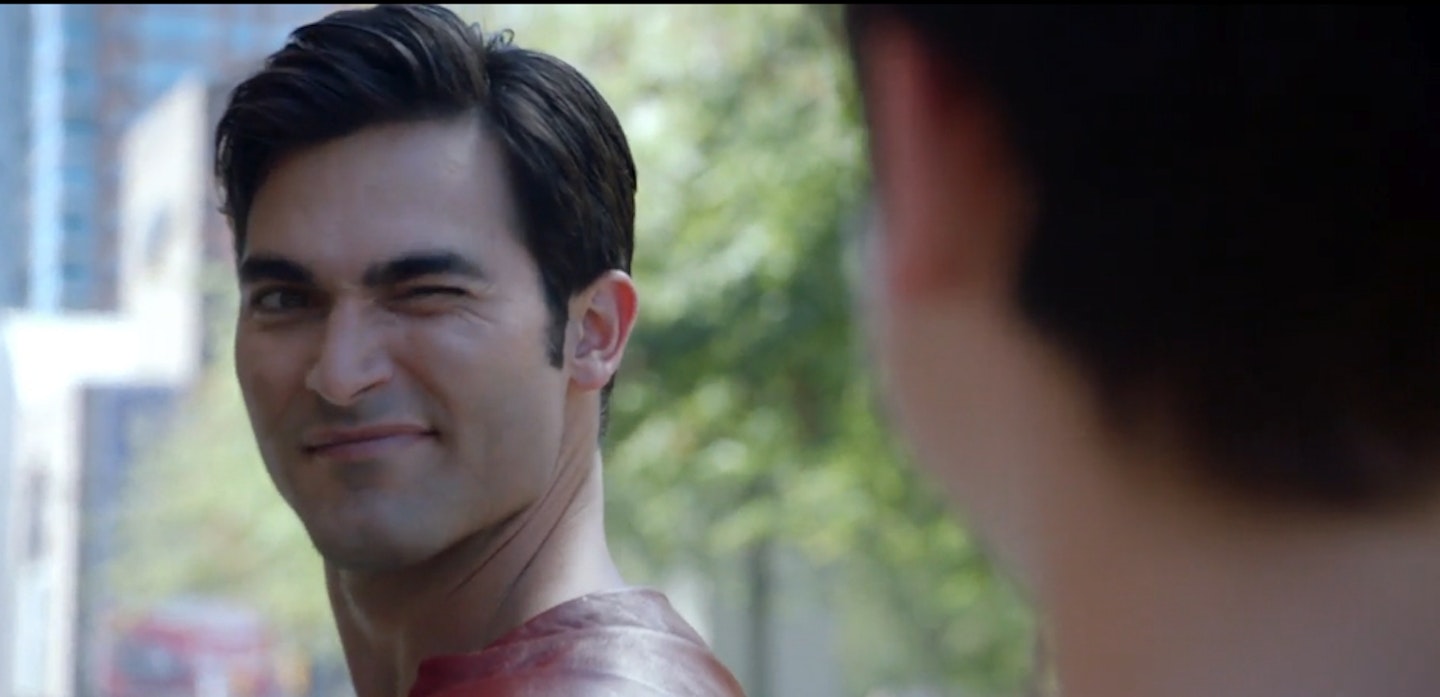
Everything for me in this was support. He's there to support Supergirl, he's there to help her, if and when she needs it. And to impart wisdom where he can, but at this point of this story, I don't think anything is about him. You know what I mean? When he's Clark, yeah, it can be about Clark, and it's about his work and it's about his relationship with Lois and stuff. We're not really there for that. You can see a little bit of Clark, and we'll see more of it again, but when he's there as Superman especially, he's there to help, he's there to support, he's there to encourage and make it about other people. I do compare it to that experience of being in a locker room. There's the veteran guys and there's the rookies. The veteran guys have been around enough, the coaches don't really need to come to the veteran guys anymore. They know what they're doing, they're comfortable in their own skin, they know how it works, they know how it goes. The veteran guys are now there to help the younger guys come up. They're there to encourage them to become the next veterans. That's kind of what it is. So that's something that I had been able to relate it to as well. Superman's only hope and idea at that point is to encourage others to reach their potential as well, and that's all he wants to do.
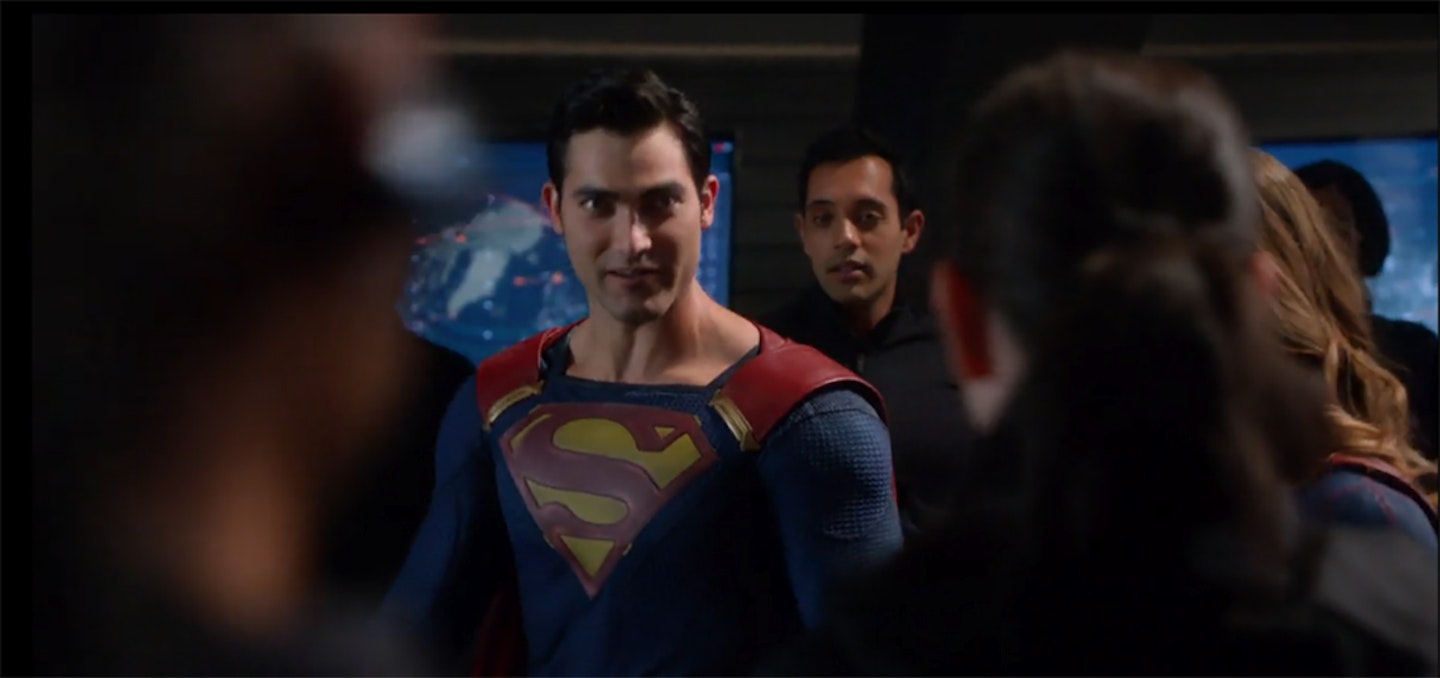
That’s kind of captured in the moment when he enters the DEO base and everybody is reacting to his presence, and Superman says to them, “I want to thank you for your hard work.” It’s an interesting approach to the character.
I remember telling Melissa, after a couple of takes of that, I went up to her and I was, like, "This is the hardest scene." "Oh, really? Why" "Well, because I don't like attention. It's so many eyeballs, which is crazy.” She was, like, "You know what's great, though? I don't think he would either." I'm, like, "No, I don't think he does." So that was something that in that moment I connected to as well, which is that he understands the symbol that he is and what he means to a lot of people, and so he has to live up to that. Whether that's a part of his personality or not, I think something fun about the character was that really you're kind of playing three or four, sometimes five characters in that guy. Because you have Clark when he's just very much Clark. You have Clark when he's around the people who know that he's Superman. Then you have Superman, and then you have Clark around people that don't know that he's Superman and can't know that he's Superman. There's just so many different layers of his personality to where, I think for me, the true Clark/Superman/Kal-El is really when he's being Clark around people that know he's Superman. That is the truest him, that's him not putting on any kind of extra show, playing anything up, playing anything down. For me, he enjoys the moment with the little kids and being able to encourage, but the idea of being looked at and revered? I’m not really sure he loves that. It’s something he understands and he’ll take it on as that’s part of his role, but I don’t think it’s necessarily something where he walks around going, “Oh, yeah, man, people think I’m great.”
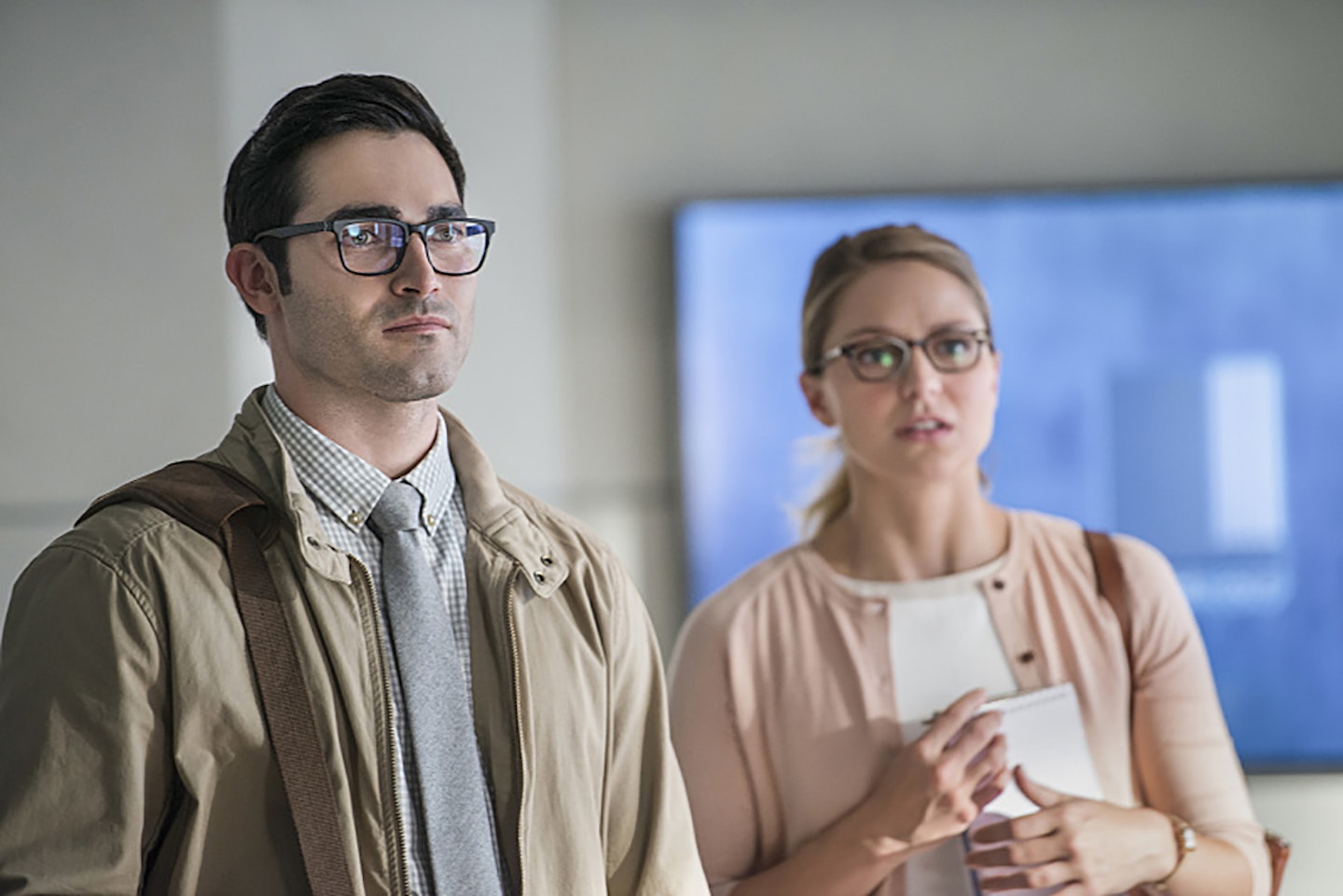
In assuming the character, were they any previous interpretations that inspired you?
Honestly, I was kind of in a weird way very fortunate that I really didn't grow up with a lot of Superman stuff. Dean Cain in Lois And Clark was the Superman that I grew up with. For the most part, I was unaware of the previous movies and things after that. I really, to be honest, think I was kind of scared to admit this at first, but I've honestly really not seen almost any Superman stuff.
That’s surprising to hear, given how you play him.
When the job was kind of an idea and when this was all coming about, I intentionally made a choice, because I had time to, to not go back and look at anything and not watch any of the newer ones either, because I never wanted the temptation to imitate or emulate something that had been done beforehand. The last thing I wanted was to be on set and to do something and go, "Oh, you know what? That's a little too similar to what Reeve did,” or, “Oh, you know what? It's a little too far away from that version that I kind of like." I really went in completely blind and just with the knowledge of, again, what Greg and Andrew and I had all said we found really interesting about the character and the themes that we felt were important for him. So anytime someone says, "Well, how do you compare your Superman to other Supermen?", I literally can't, because I don't know. This is just a version of the character as I understand it, and that I think he is.
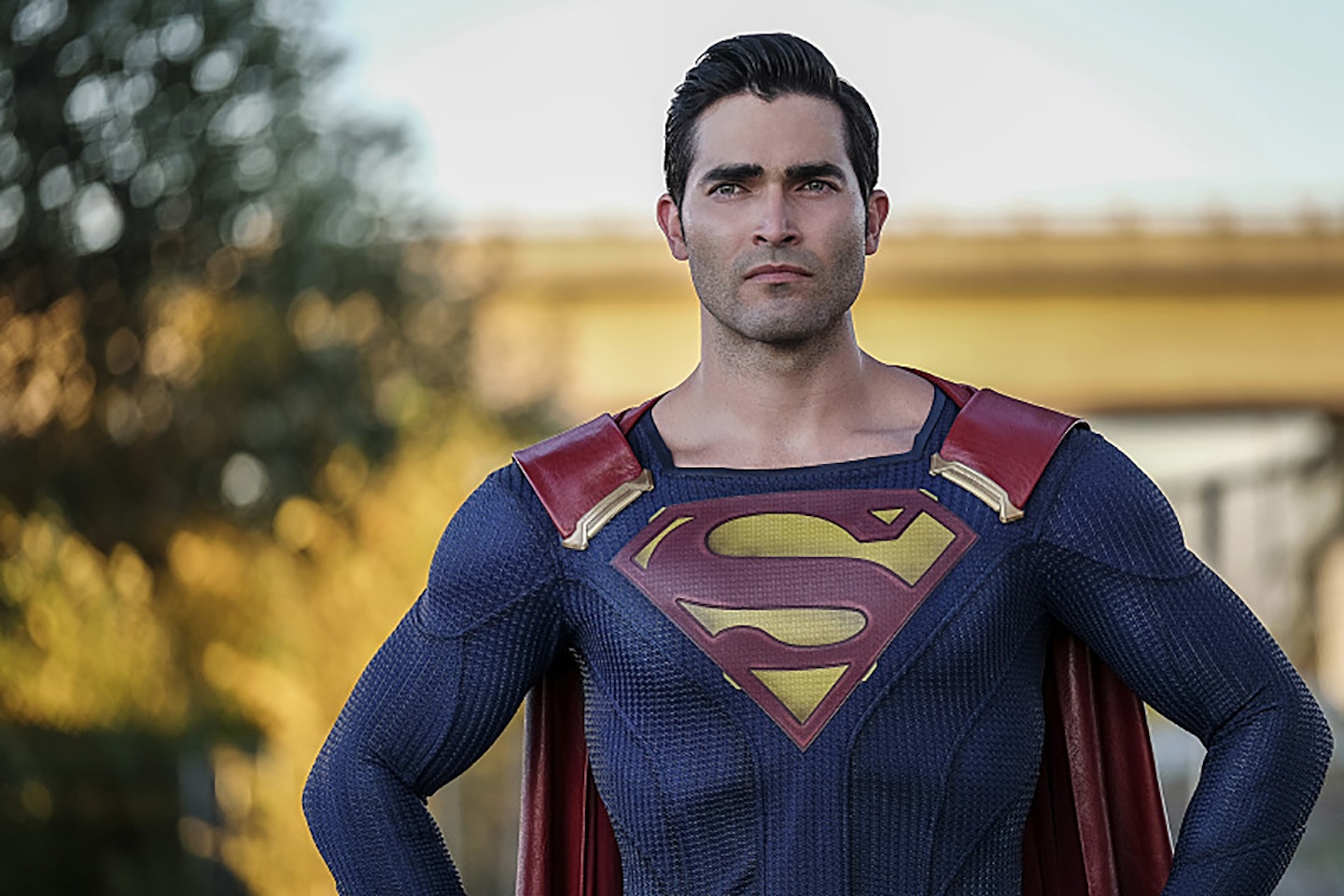
Especially in this world. They did such a great job of setting the tone with Melissa and Kara and Supergirl in the first season that the ideas that I'd had about him coming into this, it's really ... I mean, I did audition for Man Of Steel years ago, when I was much younger and there were things about the character that kind of hit me for the first time when I was going in for that. It is funny, because, again, I haven’t seen them, but I know the tones are different. And
I get it, because going in for that audition, it was very much different. I read those scenes completely differently than the way that I played the character in this. That's because you have to know the story that you're telling, and you have to know the tone in which the story is being told. Those ideas stayed with me of who I thought he was. The way that they're played out is just different, because it's a different story that you're telling.
When you auditioned for Man Of Steel, did you get a sense they were going for a darker, heavier approach, rather than that more optimistic approach taken by Supergirl?
Oh yeah, absolutely. The scenes that were read for that, it was already very much obvious from the beginning that that was going to be a story of his struggle with things.
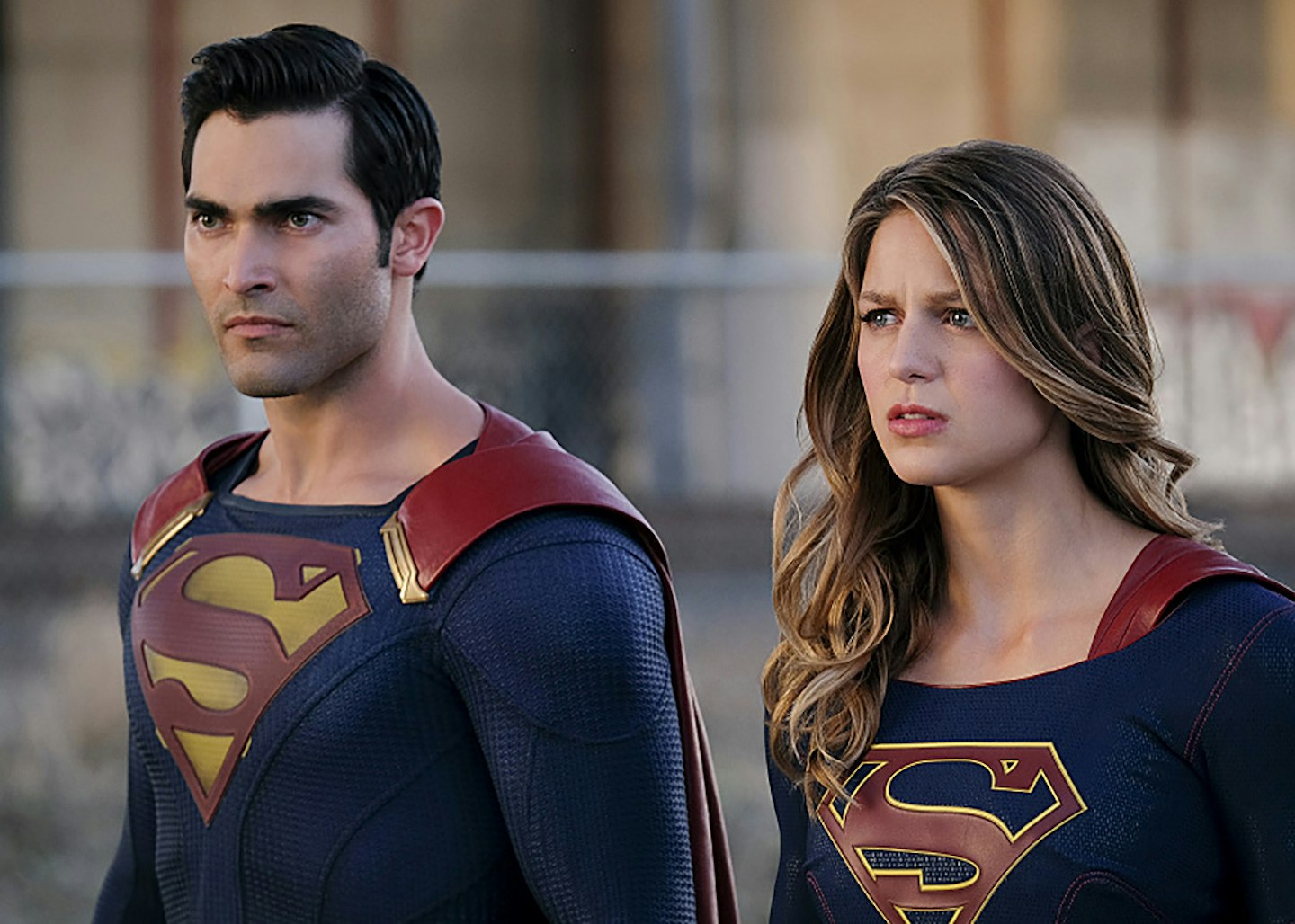
Is there any talk about you coming back beyond these first two episodes?
We've had conversations, but there's a lot of things that go into that. It's obviously a very loved and protected character, and so they always want to, from what I understand, make sure that everybody is happy about what's being done. We'll see. It's TV, so you never know. My whole thing going into it was that it was two episodes. It was a chance to do something that I think is pretty much every boy's dream, and for me, I had an absolute blast doing it. If it ends up being these two episodes, then I'll be more than happy to say that I got to do it and I had so much fun; it was an incredible experience. If it turns out to be more, then we'll cross that bridge when we come to it. For now, I'm just really grateful that it's been what it has been and that people have enjoyed it so far.
The fans are so funny. They're already saying, "They should do a spin-off, they should do a spin-off!" Do you want to do a spin-off, Tyler?
Oh, man, again, one of those things where it's a bridge to cross when you get to it. We'll see what happens. I will say I've had an immense amount of fun doing it, so I can be “persuaded” to come back.
Next year you’re in Fifty Shades Darker. Was there a conscious decision to take up something to maybe shake up your image?
You know, we shot Fifty Shades back in February, so I actually shot that before the Superman thing came up. I had a great meeting with James Foley who was directing the film, and Glengarry Glen Ross is one of my favorite movies. I was a big fan of his. Originally I met for another role, and then he said, "Look, I had a great time chatting with you. You're not going to be this guy." I said, "Okay, that's totally fine." He had called and asked if I would do this other thing. I said, "Yeah, absolutely." Went up and did that. You know, it was just fun to get the chance to work with James and to work with Dakota Johnson and Jamie Doran; they were great and a lot of fun.
You compare Fifty Shades to Teen Wolf, and it’s crazy coming from something where you really had to create and cultivate a fan base, to something that already had such a immense, established fan base. That was an experience. To do that was kind of a crazy thing, and in a weird way was a great warm-up for doing the Superman thing. It was nice to have one experience before that of doing something that's very well-known and having that immediate reaction of, "Oh, I hate him, it's a terrible casting decision," and "Oh, I love him." Before you've even done a day's work, you've already been judged on how this is a horrible choice [laughs].
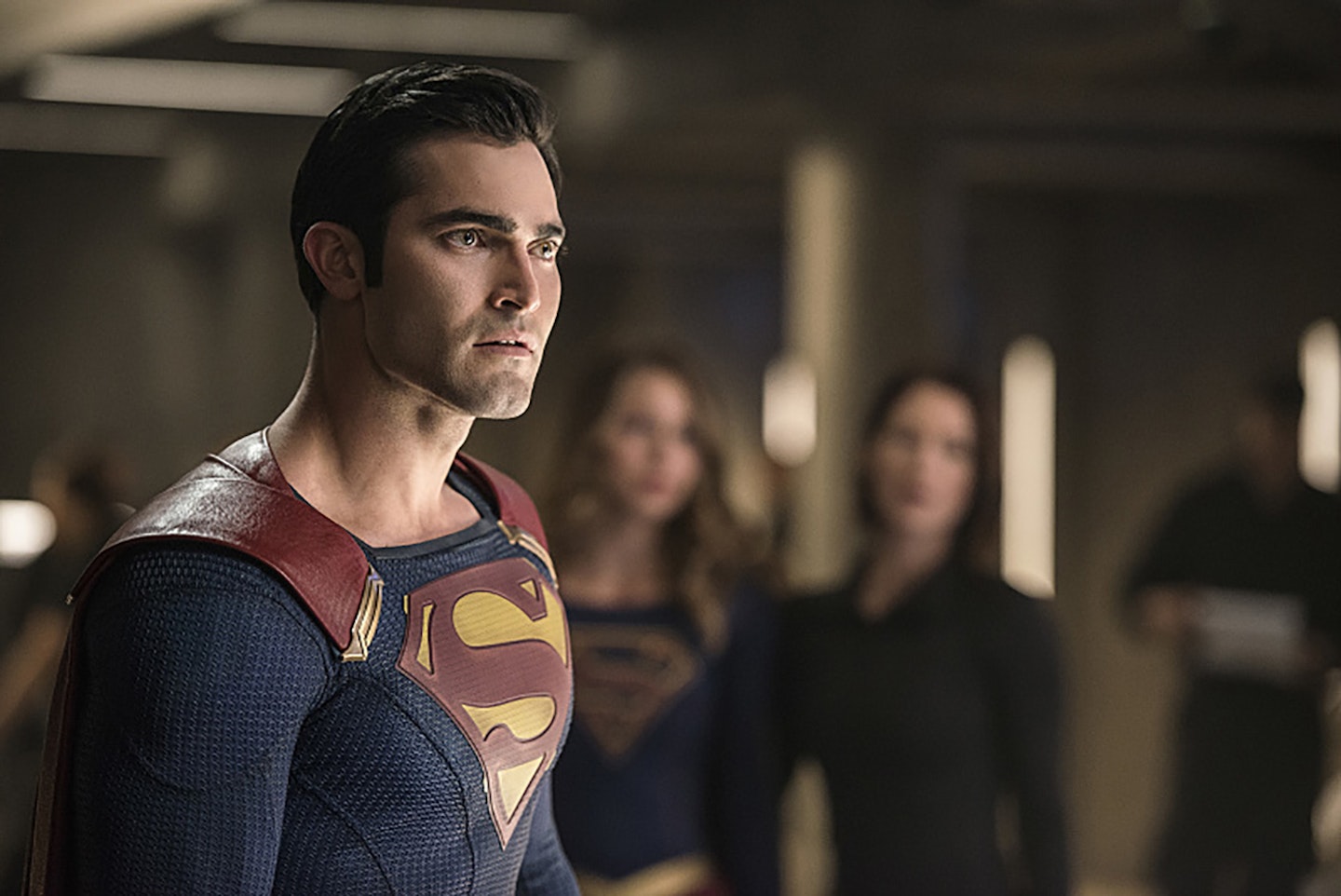
Right, because people are so shy on the Internet.
Oh, man, they really hold back. They really should say how they feel.
When you look back at what you've achieved so far, what's your feeling?
My feeling is I haven't done anything yet. Again, it just kind of goes back to what I said it was like working with Hanks and with Newman. Those guys, at least to me, never lost that drive to keep pressing, to keep learning, to keep improving, to tell the next great story. I think that's what makes them so special. I look at what Tom Hanks does, and he's always looking for a great story to tell. That's what I'm looking forward to. In the last few years, I've really gotten the travel bug. When I turned twenty-five, I did a six-week trip around Europe by myself. I'd never really done a European trip before and I'd definitely never traveled alone like that. I just had such a great time meeting people. I had such a great time seeing new cultures and different ways that people think and different ways that they live and different ways that they see the world.
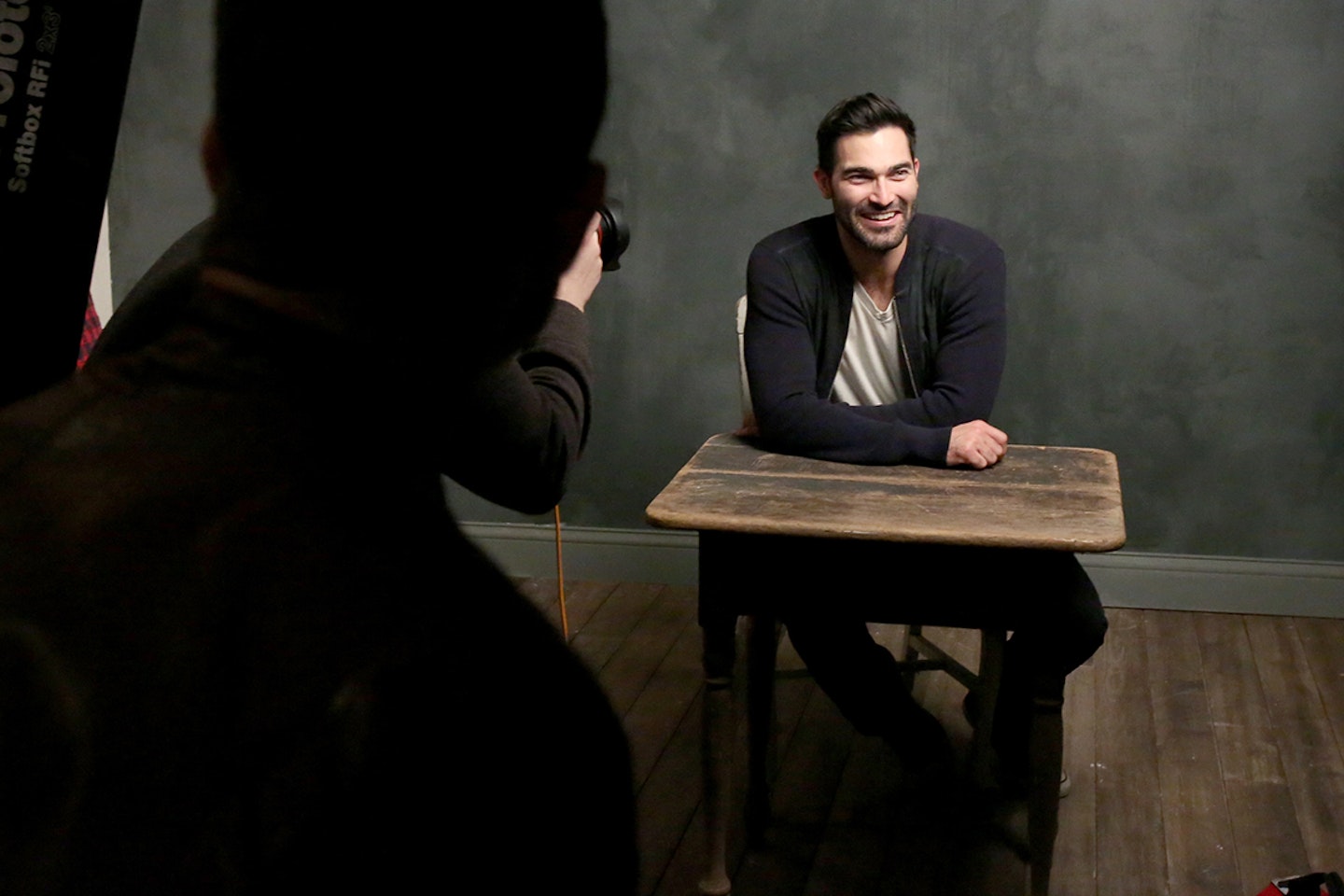
I think it was such an invaluable experience for me, that I realized, when you do that, you're just hearing somebody else's story. For me, I think it's such an important thing to hear other people's stories, because you do find ways that either you can learn something from them, or you can identify with something that they've gone through. You realize that maybe what you're going through in life isn't just specific to you, that somebody else understands it, or you talk to someone and all of sudden you see something in a completely different way because of what they've said to you or shared with you. At the end of the day, that's really what I enjoy about what I do. I love telling stories, I love for someone to see something, and go, "Oh, wow, I've never thought of it that way." Because I've had those moments in my life, where I go, "Oh, my God, I've never looked or approached this topic and had that insight or had that idea come to mind," to where it changes your life, it changes the way you see certain things. I love that. I think that's such a cool thing that we get to do by sharing stories, whether they're fiction or nonfiction.
Looking back, I'm proud of what I've been able to do, grateful for the fact that I really have very few, if almost zero, nightmare stories of being on sets and working with the wrong people. I've worked with some absolute pros and just wonderful people and great examples. Moving forward, I would hope that people could say the same things that I say now of other people I look up to. I think that's really, at the end of the day, all you can do.
